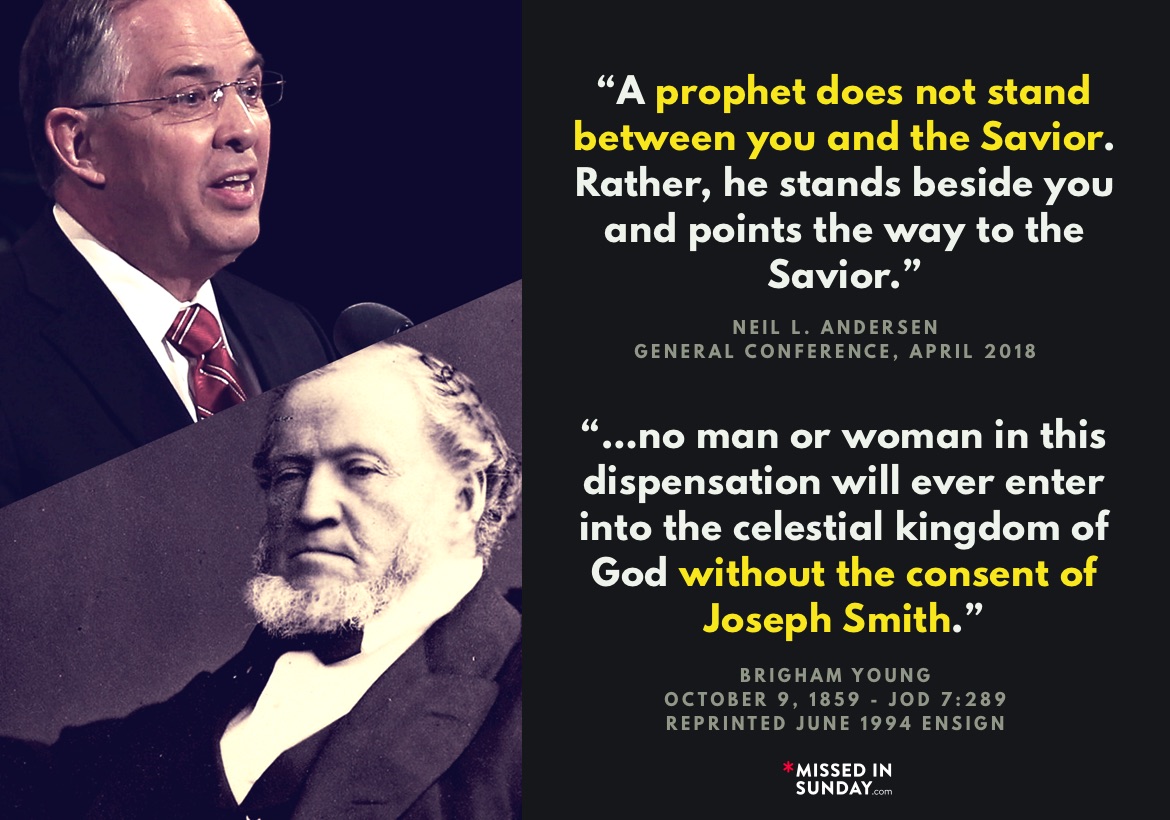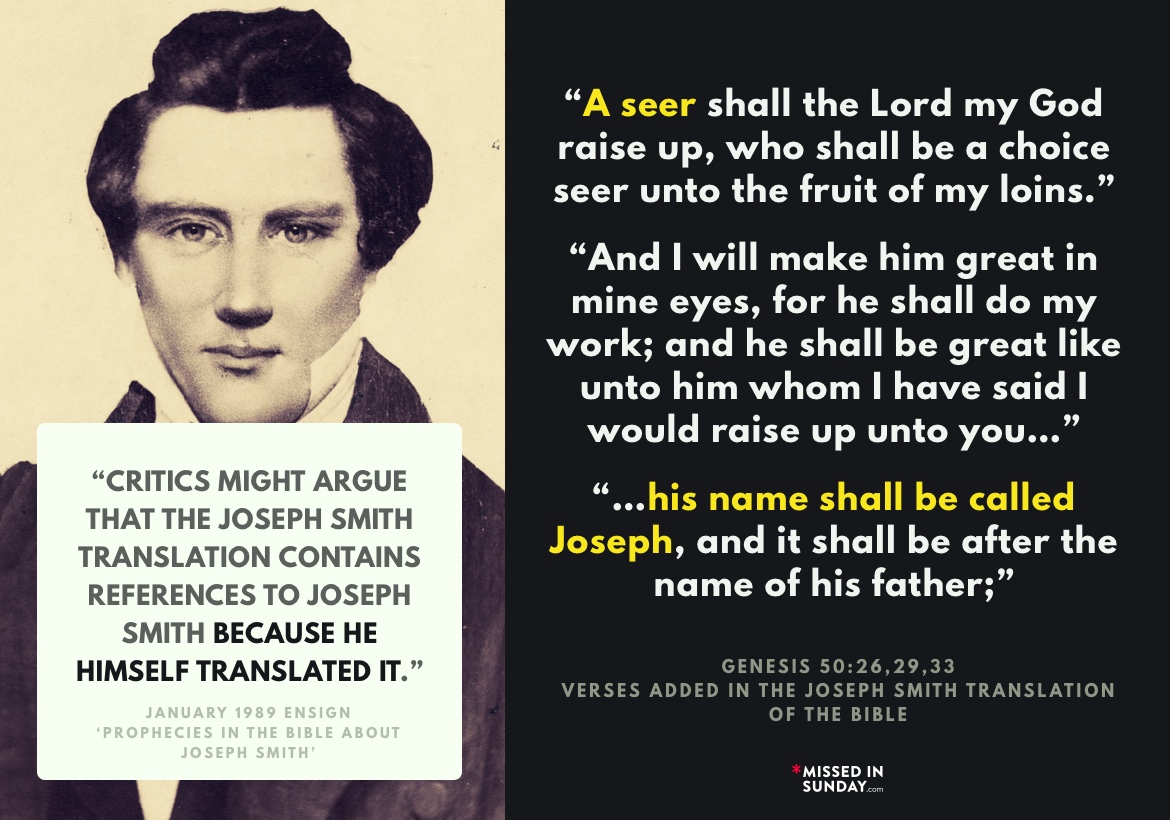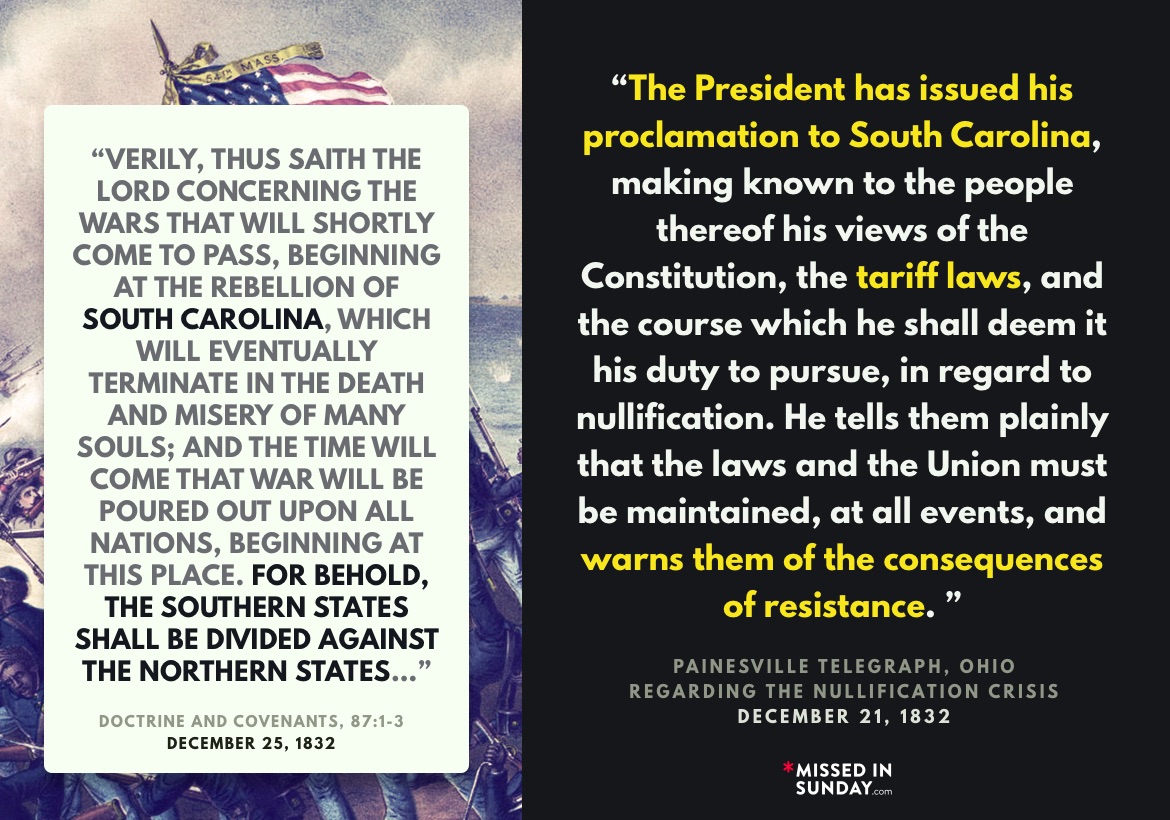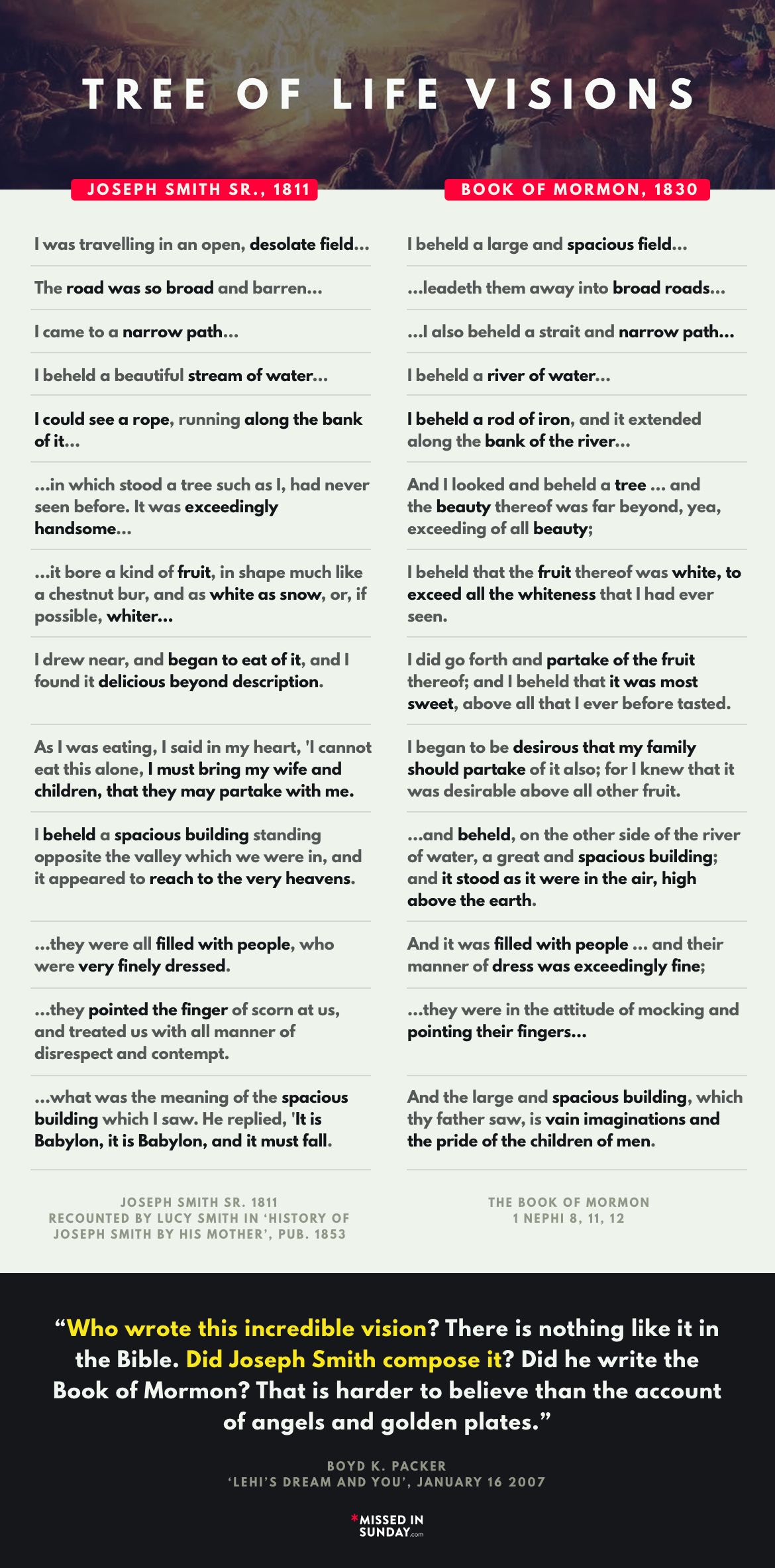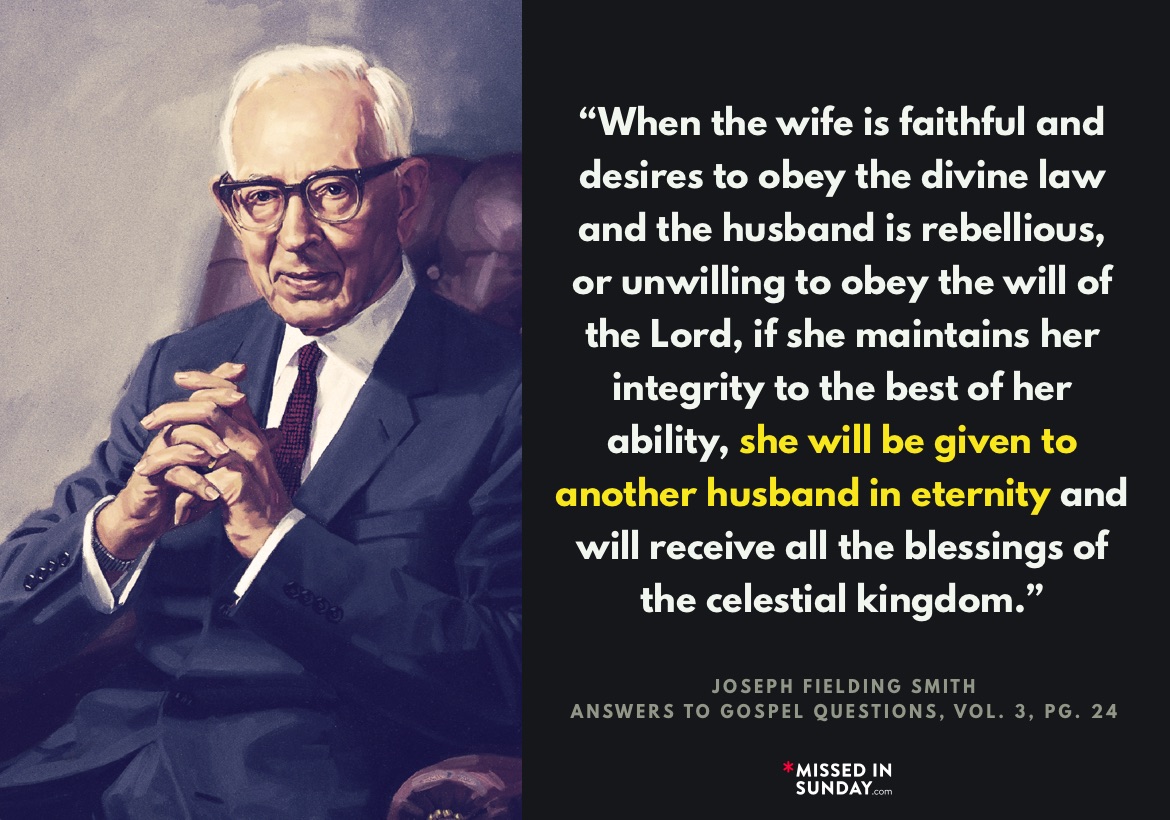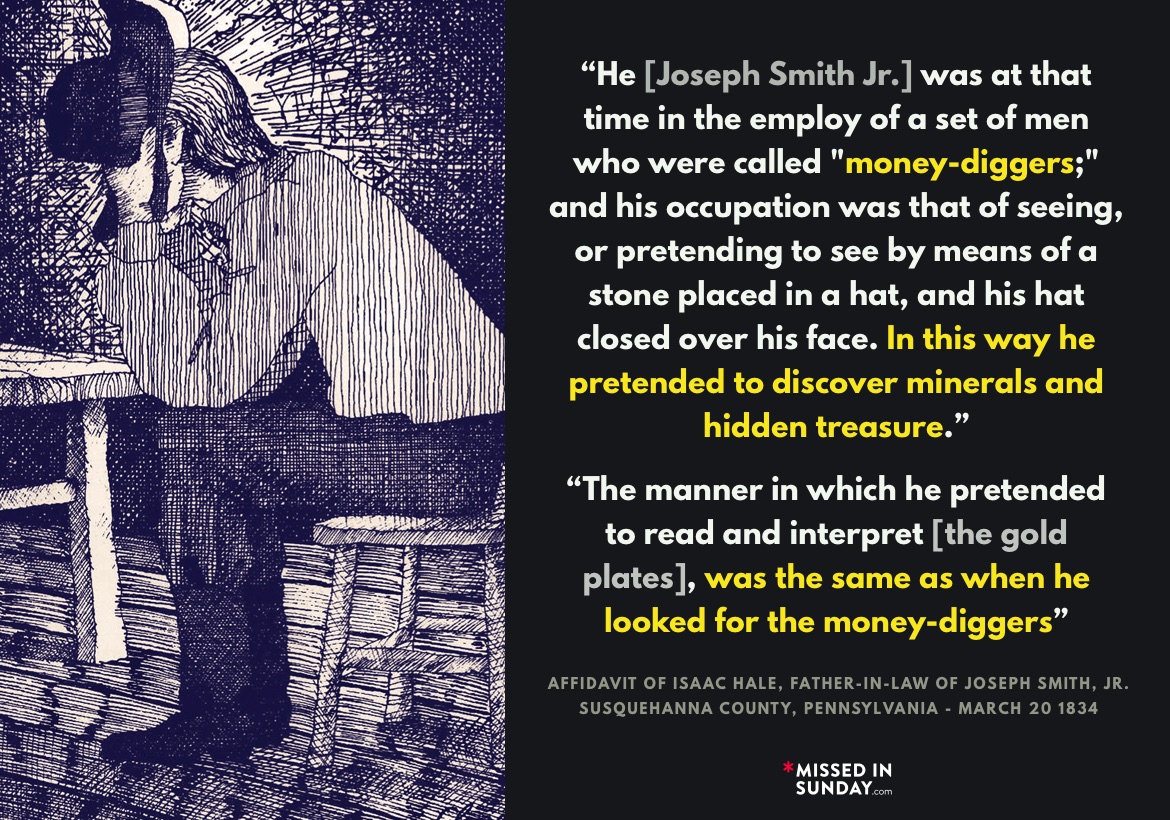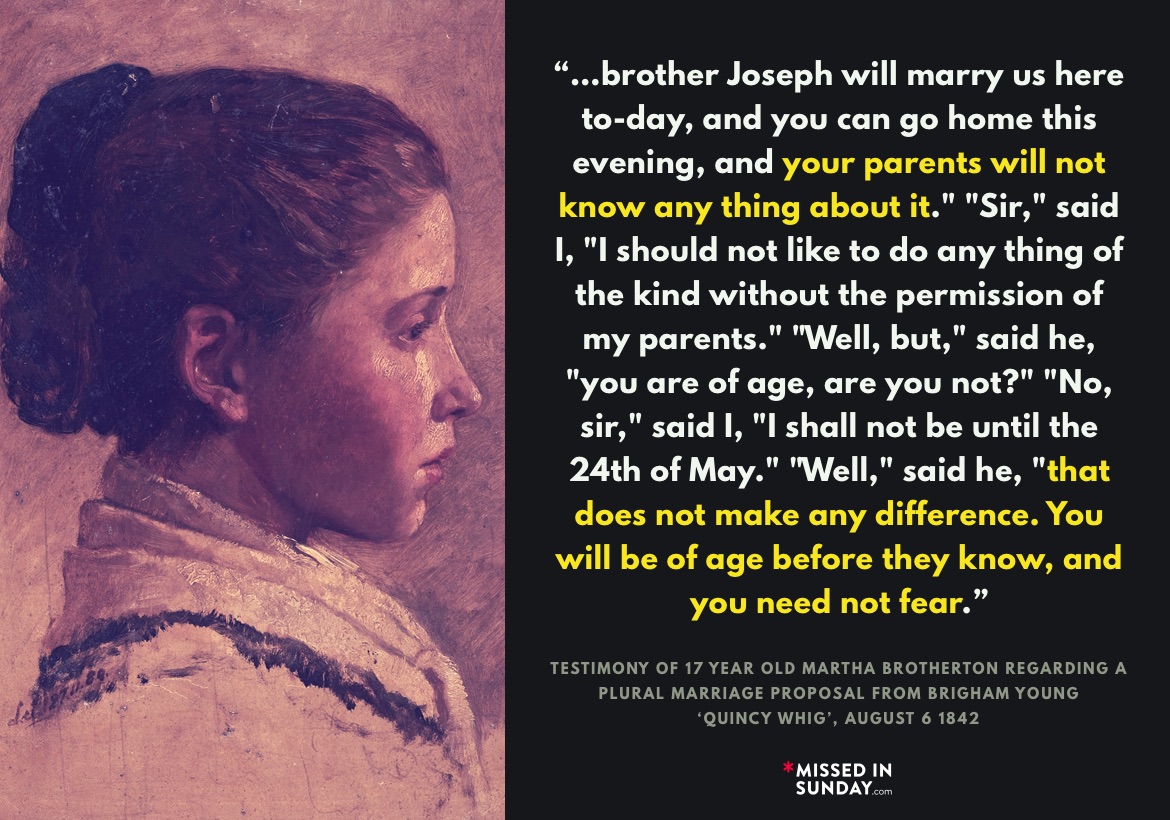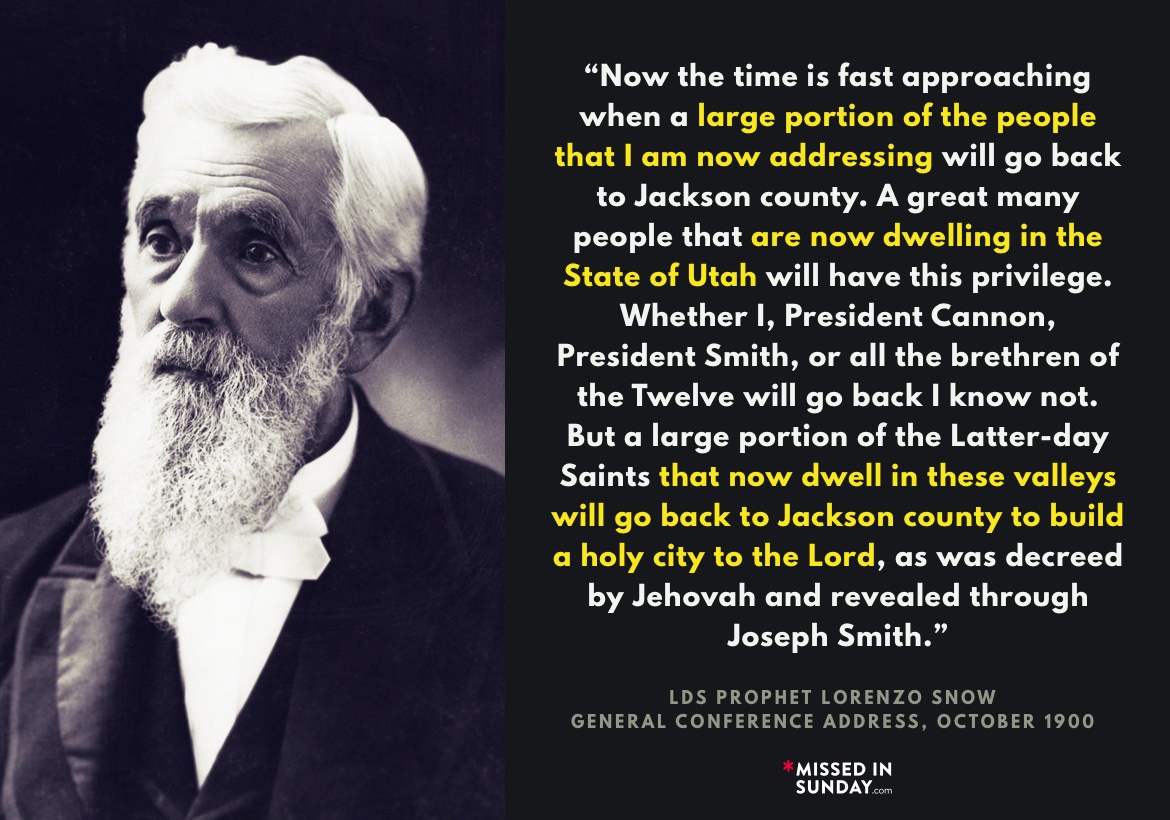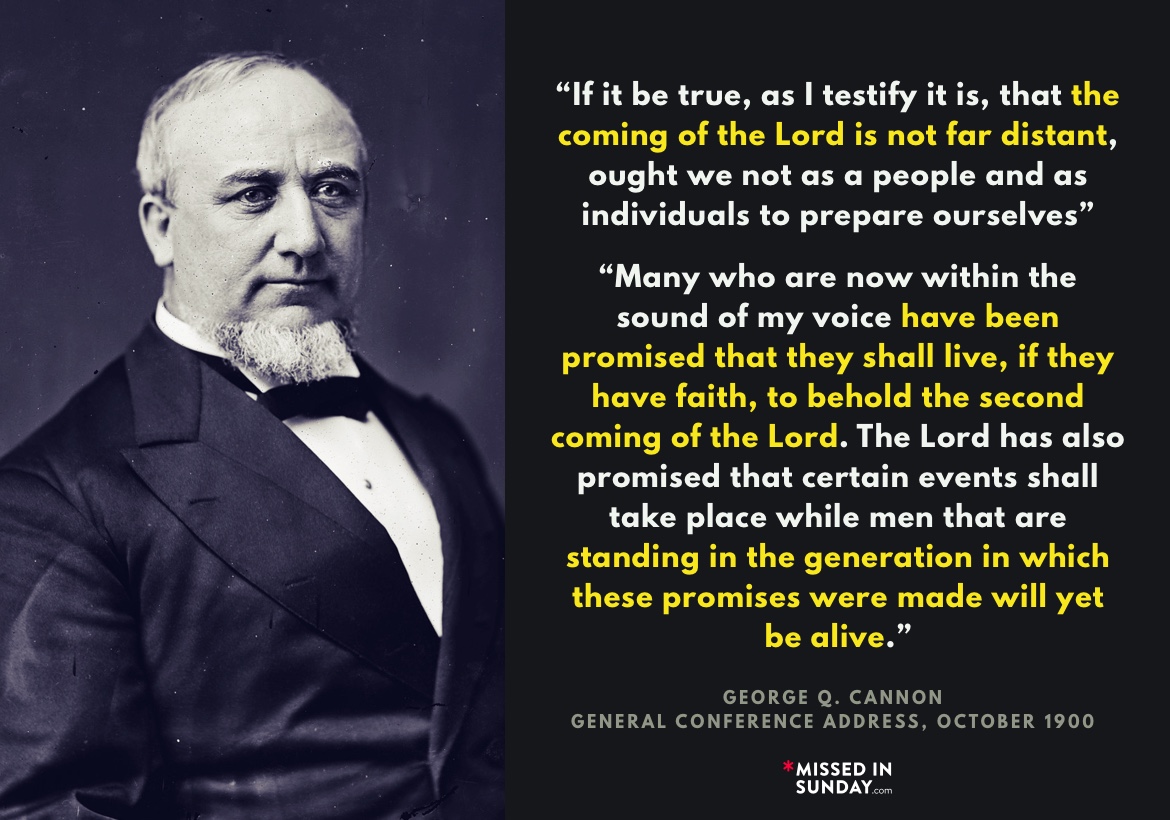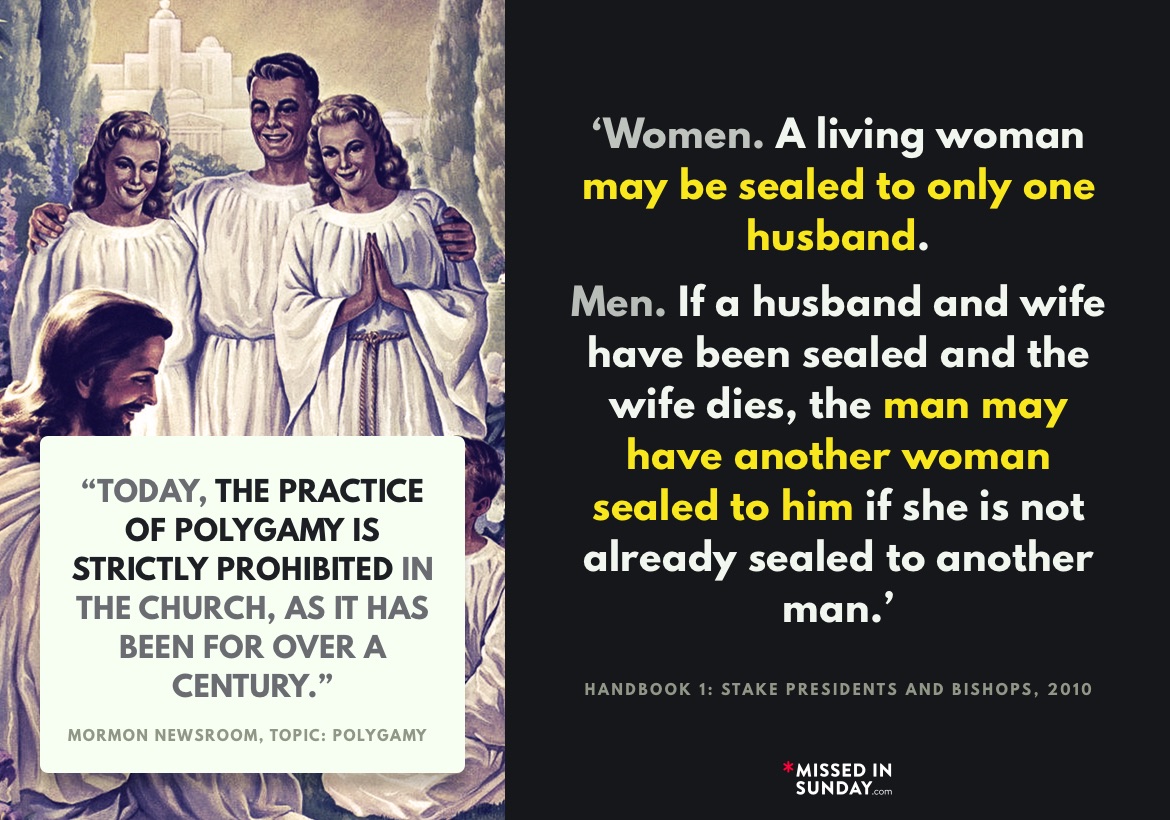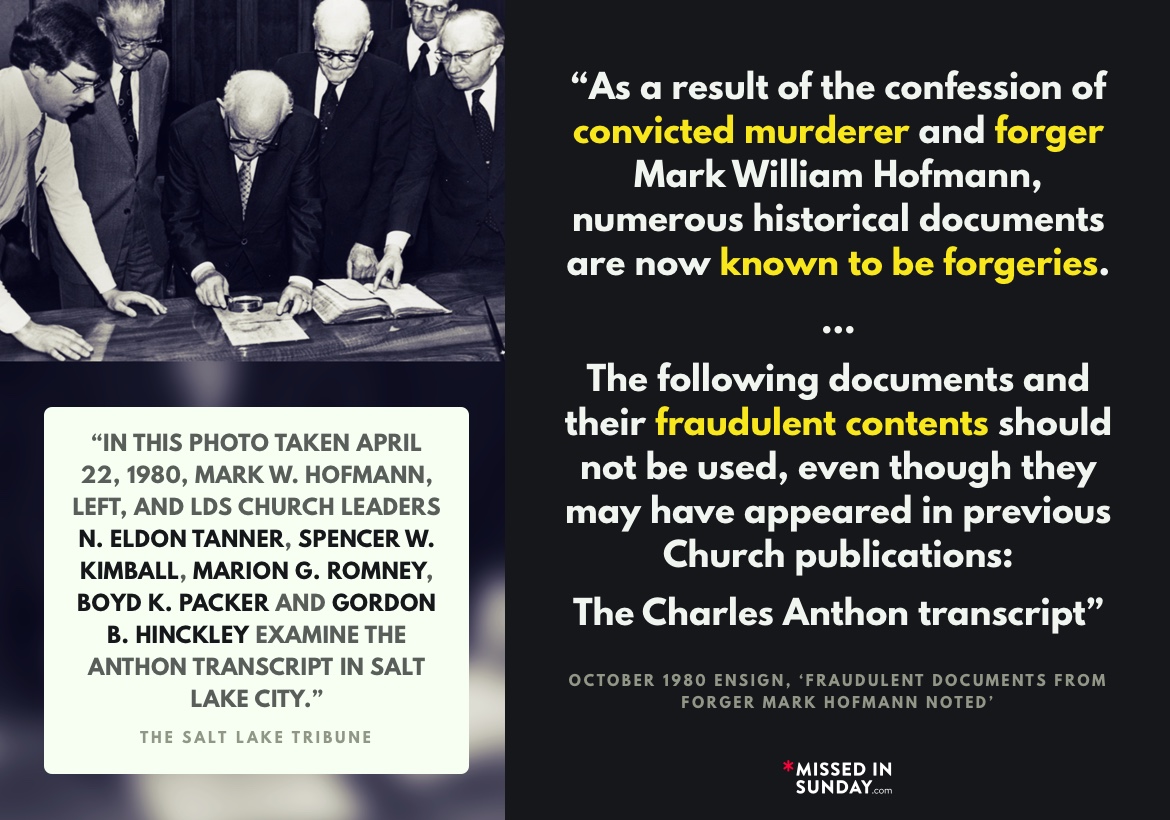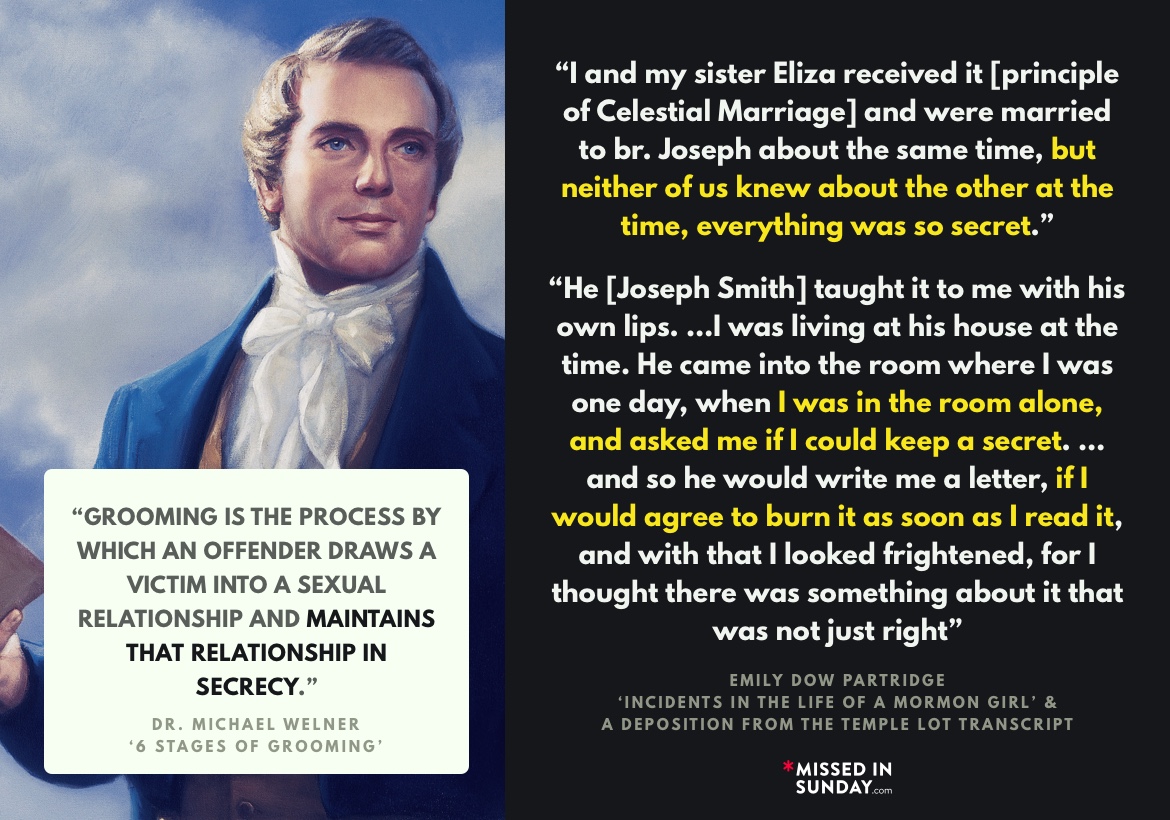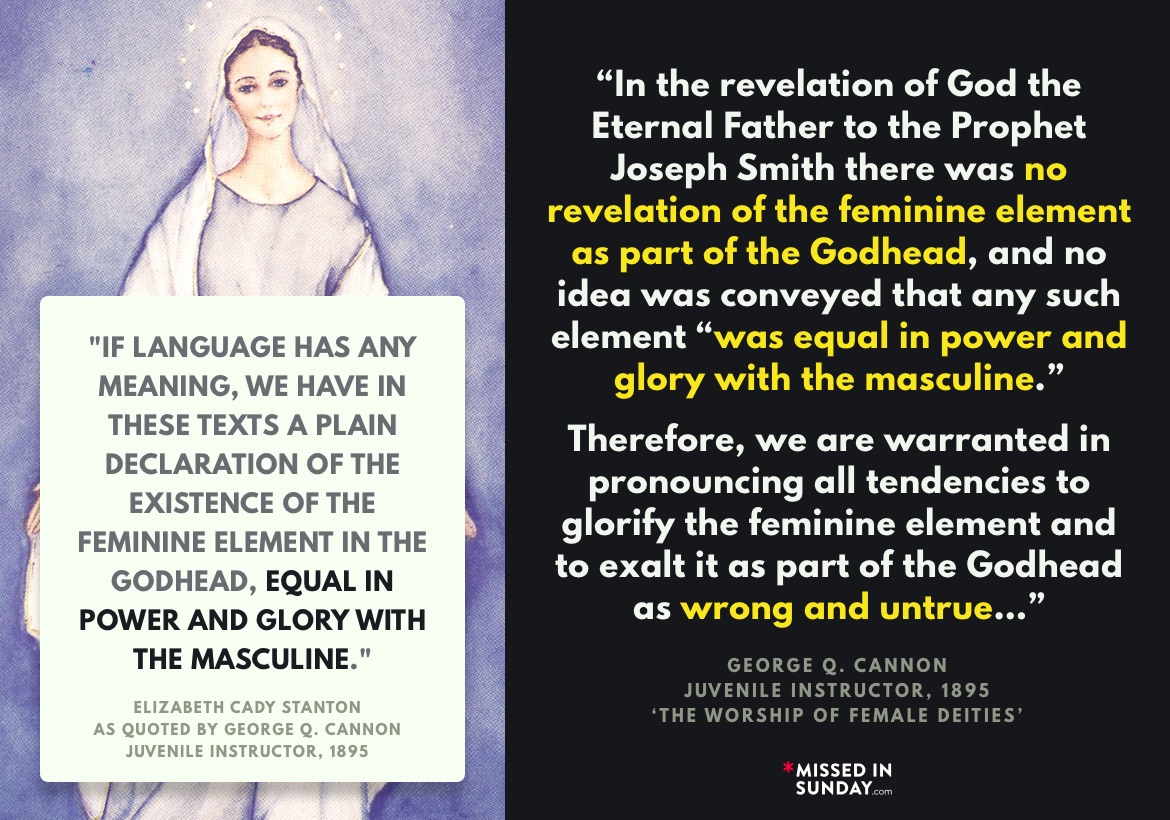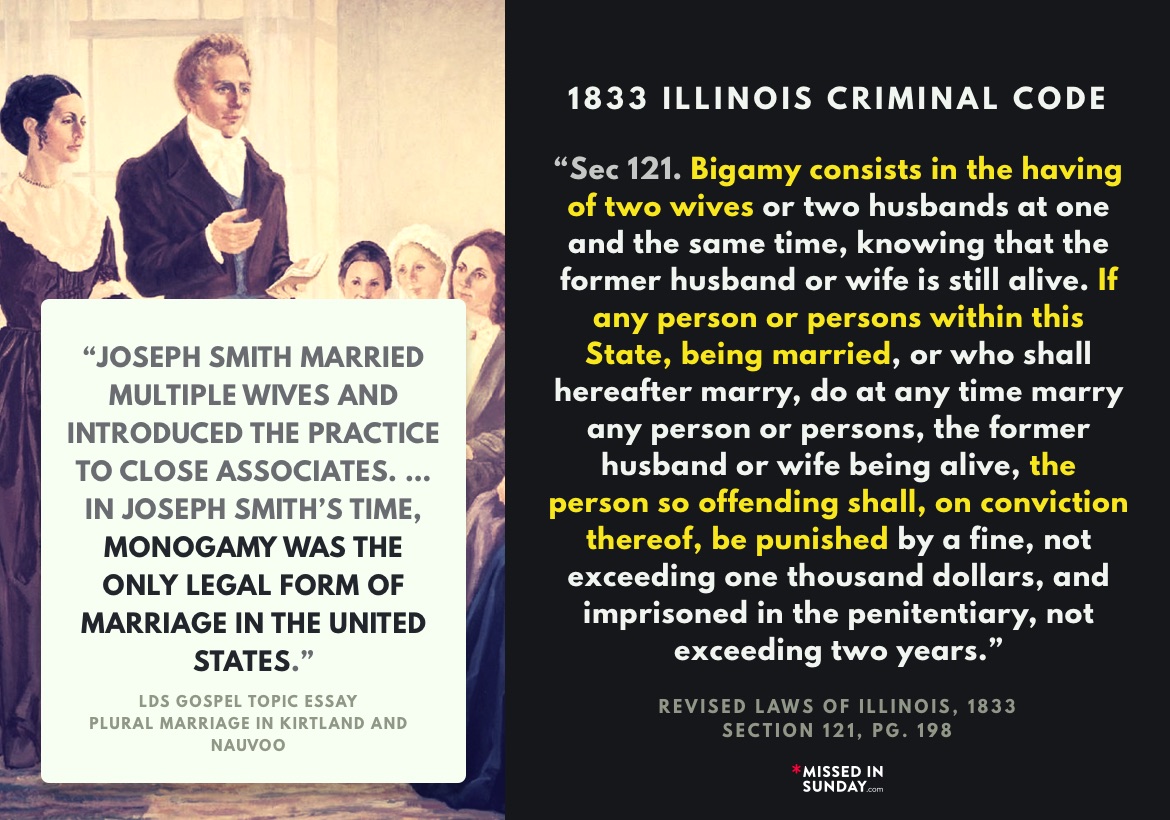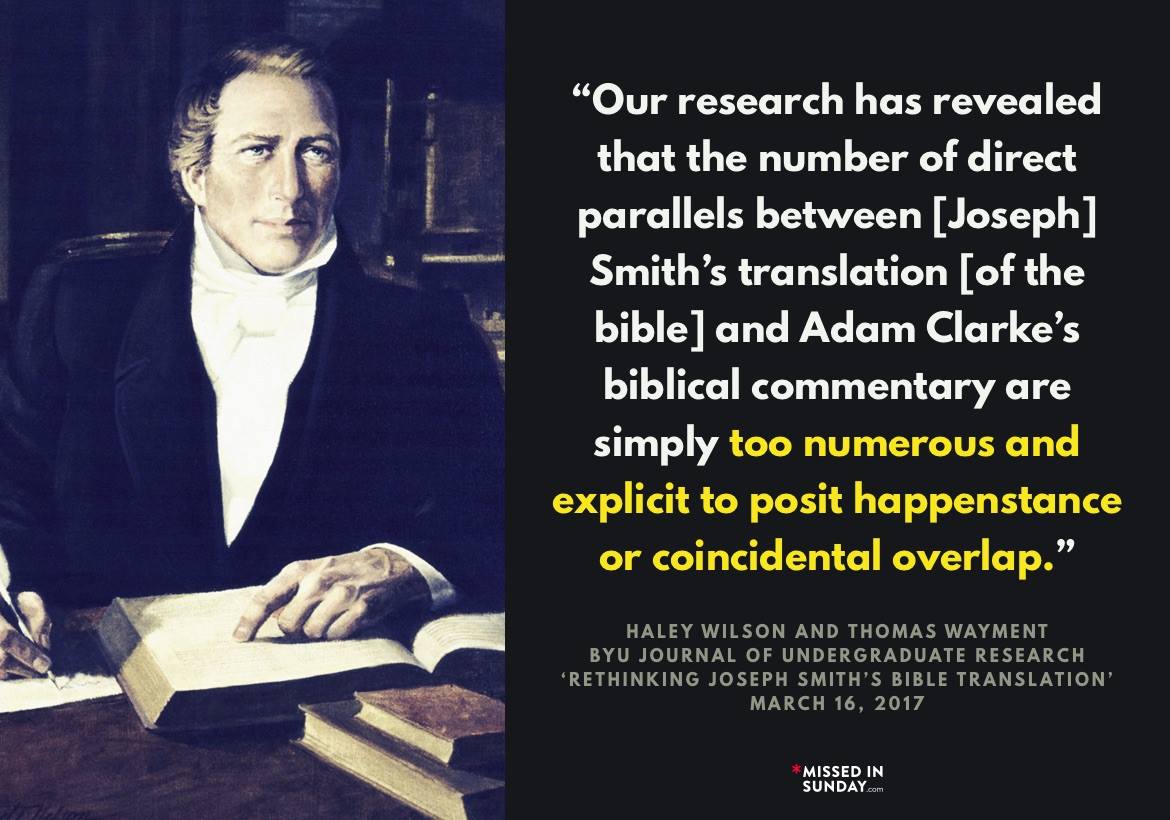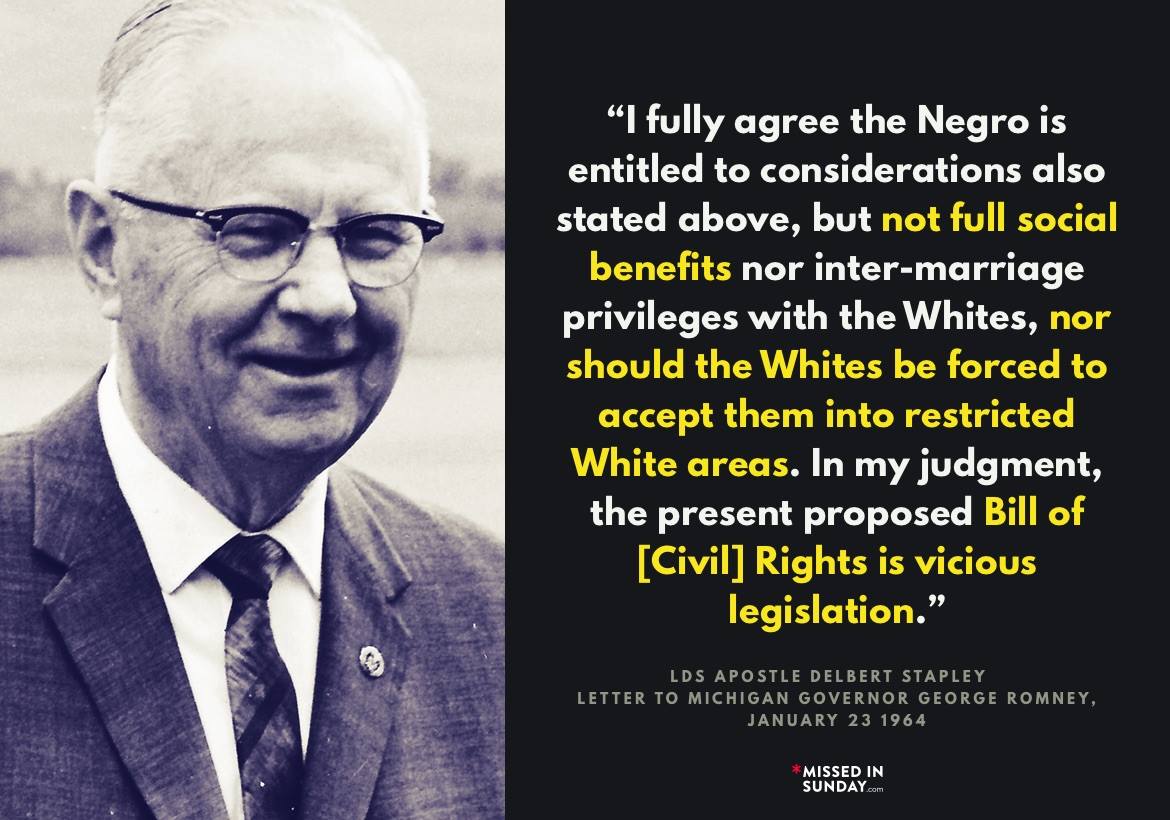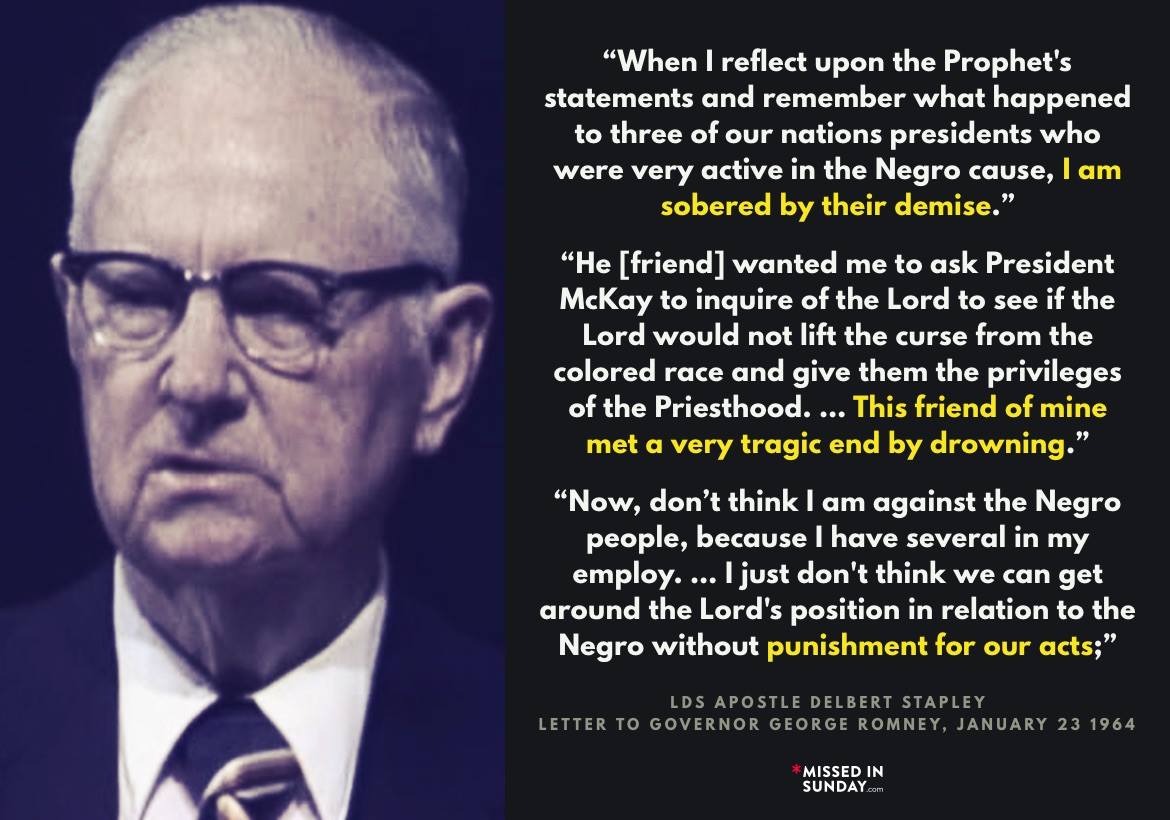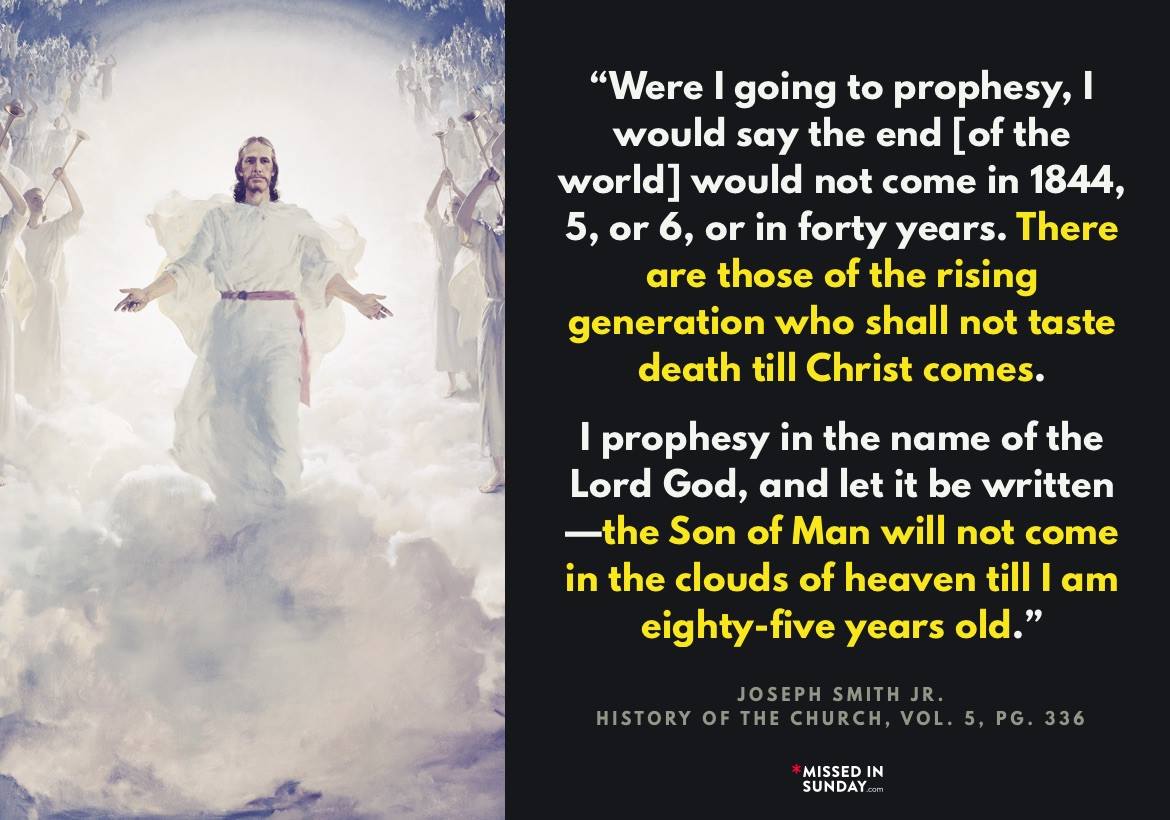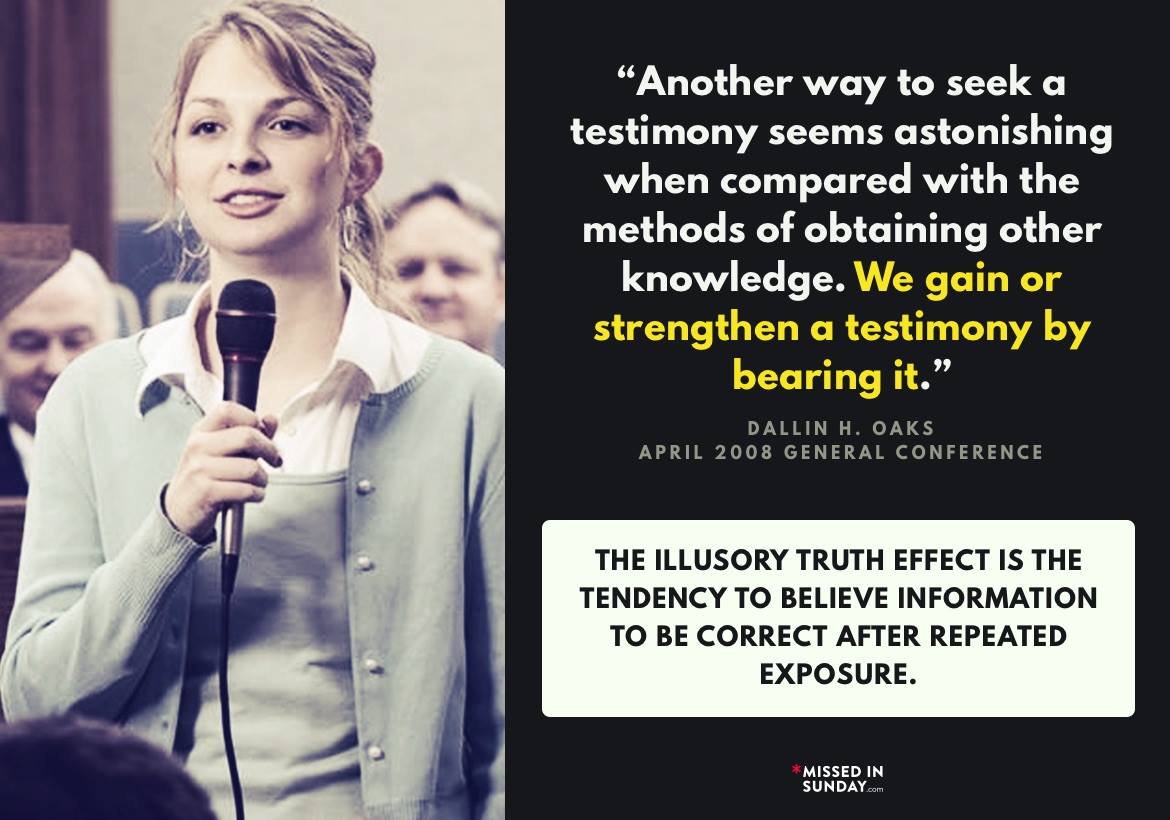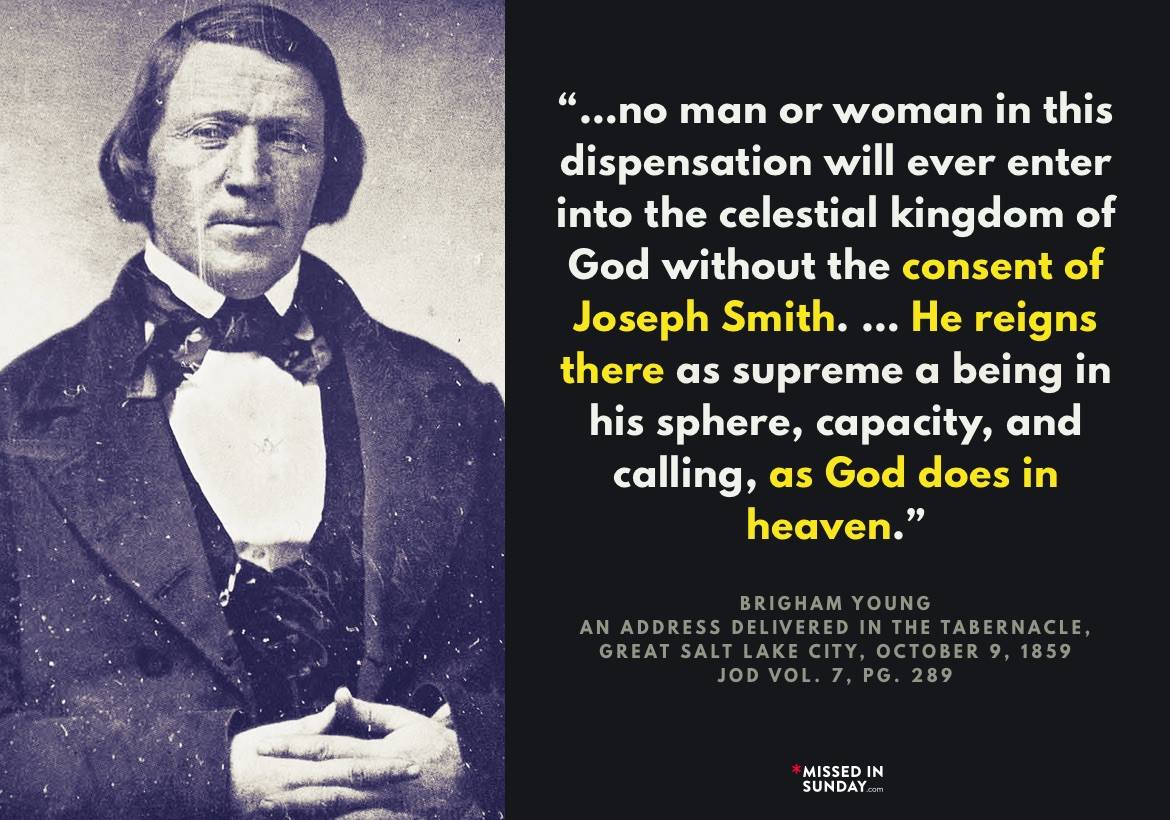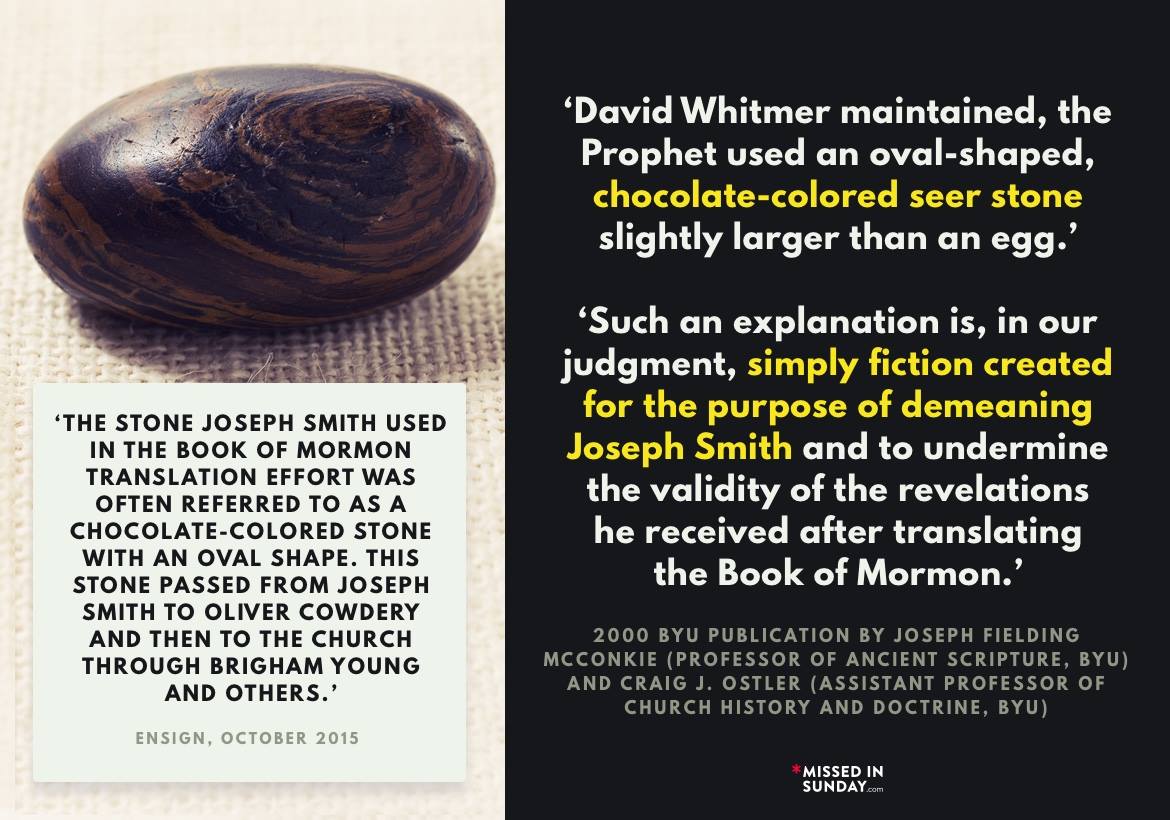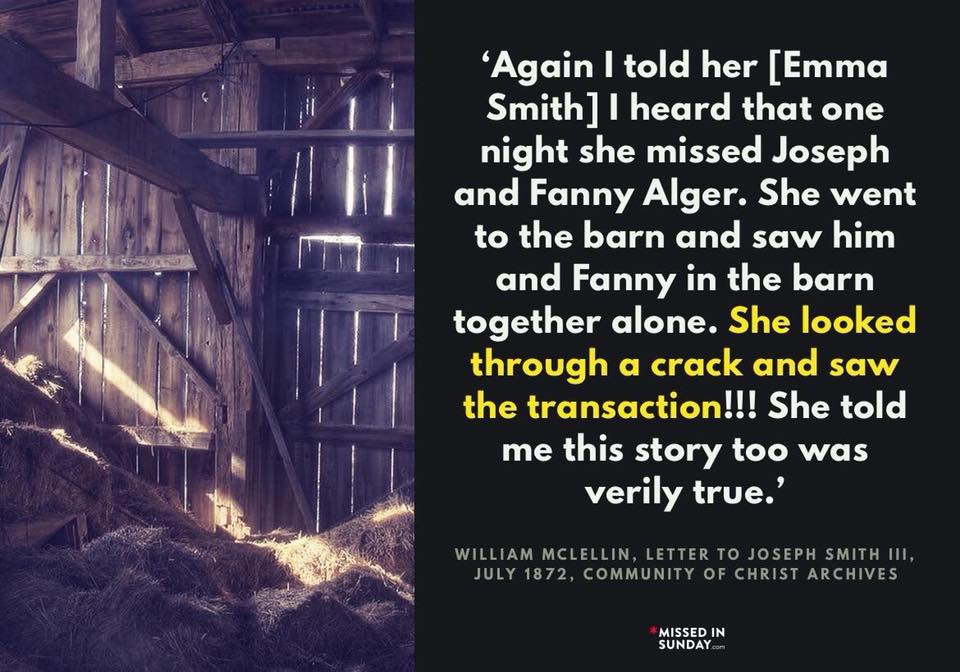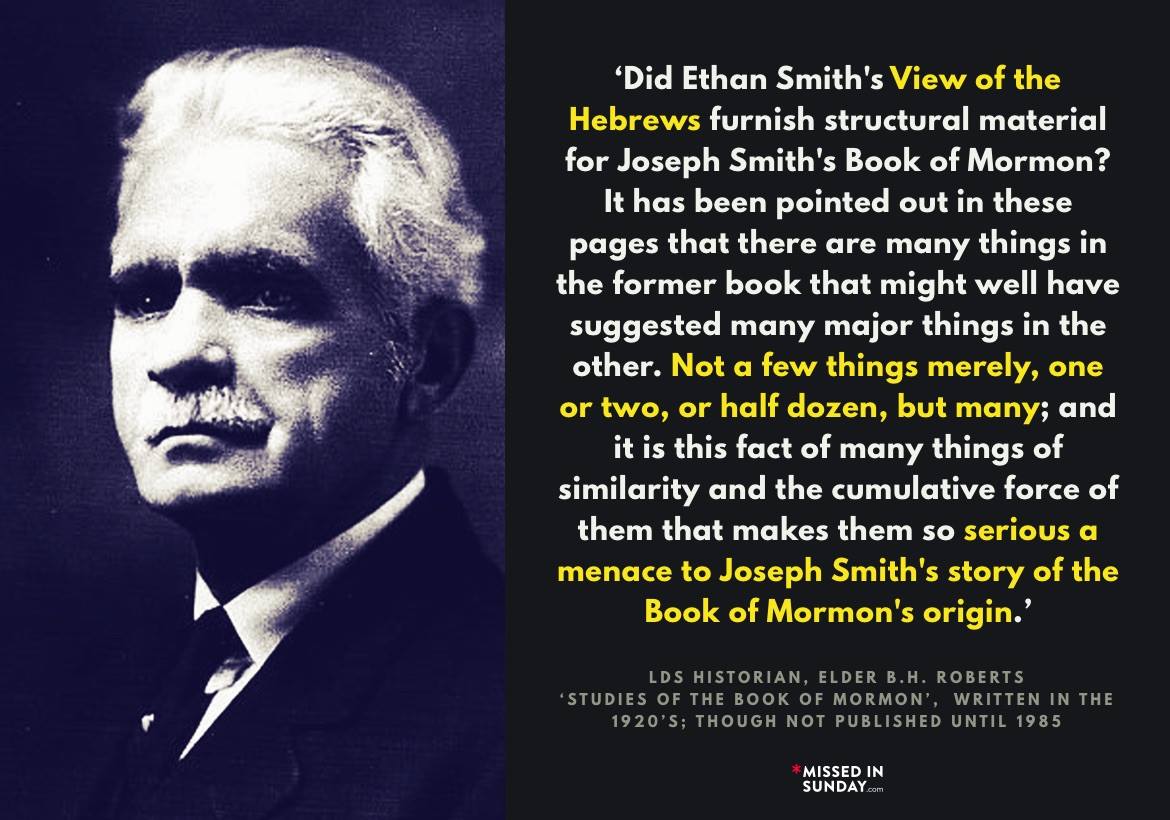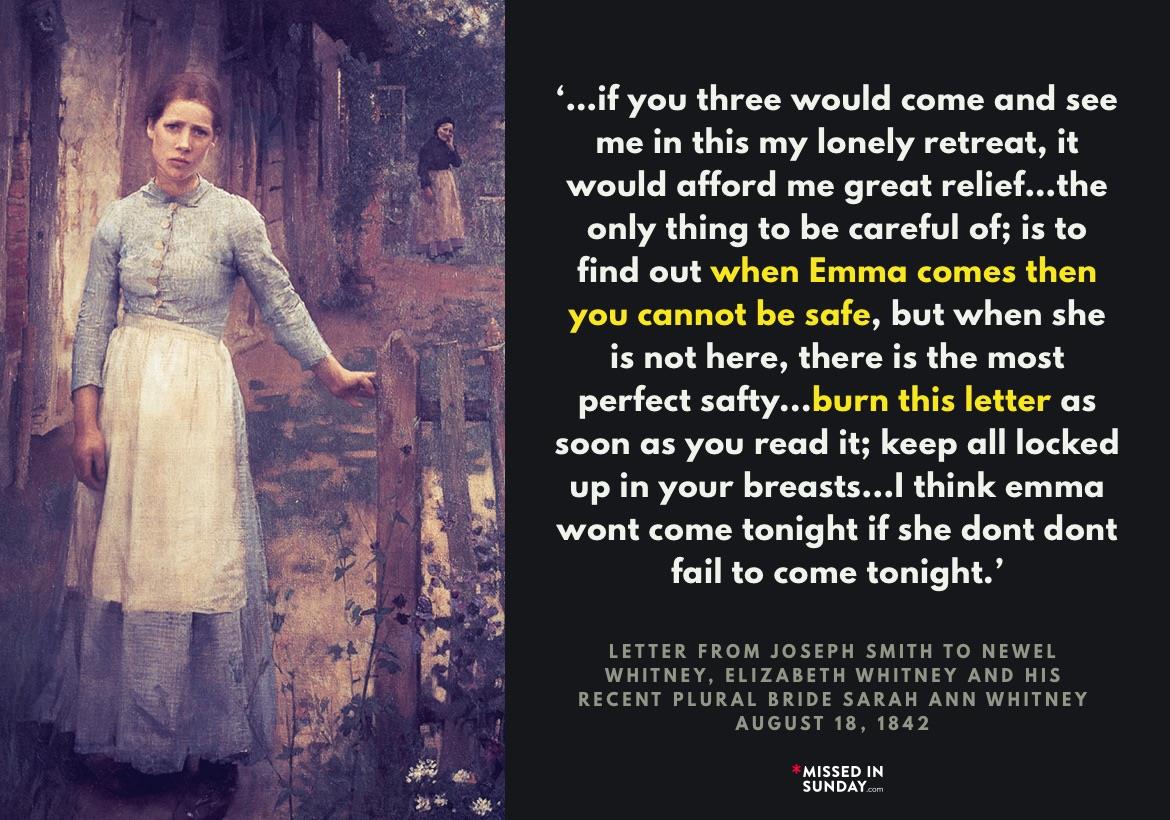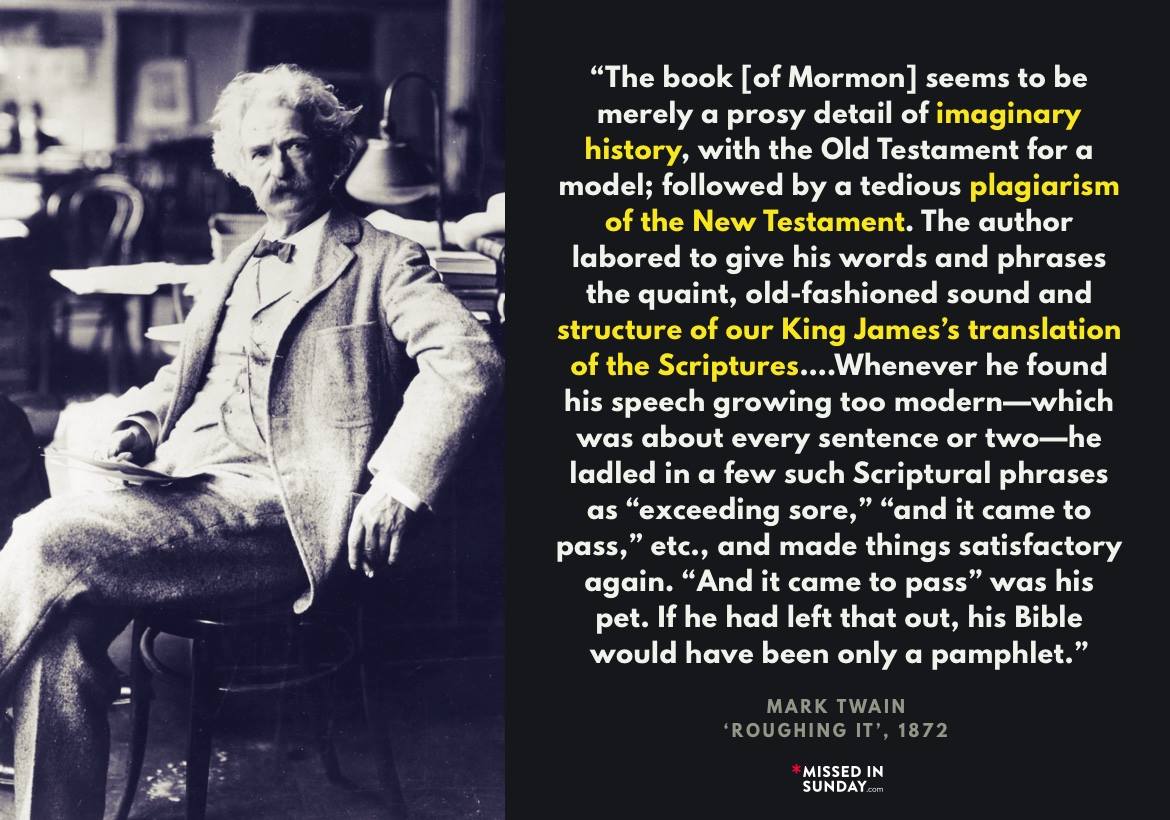On June 1, 1980 Apostle Bruce R. McConkie gave an address at BYU entitled ‘The Seven Deadly Heresies’. The text version of this talk was drastically altered from the original audio address. 1
Below is a comparison of the two versions.
| Printed version | Audio version |
|---|---|
| I have sought and do now seek that guidance and enlightenment which comes from the Holy Spirit of God. I desire to speak by the power Of the Holy Ghost so that my words will be true and wise and proper. When any of us speak by the power of the Spirit, we say what the Lord wants said, or, better, what he would say if he were here in person. | I have sought very diligently to be given utterance and have the guidance of the spirit tonight in what I hope I will be able to say to you. |
| I shall depart from my normal and usual pattern and read portions of my presentation because I want to state temperately and accurately the doctrinal principles involved and to say them in a way that will not leave room for doubt or question. I shall speak on some matters that some may consider to be controversial, though they ought not to be. They are things on which we ought to be united, and to the extent we are all guided and enlightened from on high we will be. If we are so united-and there will be no disagreement among those who believe and understand the revealed word-we will progress and advance and grow in the things of the Spirit; we will prepare ourselves for a life of peace and happiness and joy here and now, and for an eventual eternal reward in the kingdom of our Father. | I am going to depart from a normal and usual pattern and read portions of what is involved because I want to state temperately and accurately the views that I have and say them in a way that will not leave room for doubt or for question. I intend to speak on some matters that some would consider to be controversial, they ought not to be. They are things upon which we ought to be united, and proportionately as we are, we’ll make progress and advance and grow in the things of the Spirit and prepare ourselves for a life of peace and happiness and joy here and for eventual eternal reward in the kingdom of our Father. |
| There is a song or a saying or a proverb or a legend or a tradition or something that speaks of seven deadly sins. I know nothing whatever about these and hope you do not. My subject is one about which some few of you, unfortunately, do know a little. It is “‘The Seven Deadly Heresies”-not the great heresies of a lost and fallen Christendom, but some that have crept in among us. | There is a song or a saying or a proverb or a legend or a tradition or something, that speaks of seven deadly sins. I know nothing whatever about these and hope you do not. My subject is one about which some of you, unfortunately, do know a little. It is “The Seven Deadly Heresies” – not the great heresies of a lost and fallen Christendom, but some which have crept in among us. |
| Now I take a text. These words were written by Paul to certain ancient Saints. In principle they apply to us: I hear that there be divisions among you; and I partly believe it. For there must be also heresies among you, that they which are approved may be made manifest among you. [1 Cor. 11:18-19] | Now I take a text. These words were written by Paul to ancient Saints. In principle they apply to us: “I hear that there be divisions among you,” he said; “and I partly believe it. For there must be also heresies among you, that they which are approved may be made manifest among you.” [1 Cor. 11:18-19] |
| Now let me list some axioms (I guess in academic circles we call these caveats): | Now let me list some axioms. I guess in academic circles we call these caveats: |
| There is no salvation in believing a false doctrine. | There is no salvation in believing a false doctrine. |
| Truth, diamond truth, truth unmixed with error, truth alone leads to salvation. | Truth, diamond truth, truth unmixed with error, truth alone leads to salvation. |
| What we believe determines what we do. | What we believe determines what we do. |
| No man can be saved in ignorance of God and his laws. | No man can be saved in ignorance of God and his laws. |
| Man is saved no faster than he gains knowledge of Jesus Christ and the saving truths of his everlasting gospel. | Man is saved no faster than he gains knowledge of Jesus Christ and the saving truths of his everlasting gospel. |
| Gospel doctrines belong to the Lord, not to men. They are his. He ordained them, he reveals them, and he expects us to believe them. | Gospel doctrines belong to the Lord, not to men. They are His. He ordained them, he reveals them, and he expects us to believe them. |
| The doctrines of salvation are not discovered in the laboratory or on a geological field trip or by accompanying Darwin around the world. They come by revelation and in no other way. | The doctrines of salvation are not discovered in the laboratory or on a geological field trip or by accompanying Darwin around the world. They come by revelation and in no other way. |
| Our sole concern in seeking truth should be to learn and believe what the Lord knows and believes. Providentially he has set forth some of his views in the holy scriptures. Our goal as mortals is to gain the mind of Christ, to believe what he believes, to think what he thinks, to say what he says, to do what he does, and to be as he is. | Our sole concern in seeking truth should be to learn and believe what the Lord knows and believes. Providentially he has set forth some of his views in the Holy Scriptures. Our goal as mortals is to gain the mind of Christ, to believe what he believes, to think what he thinks, to say what he says, to do what he does, and to be as he is. |
| We are called upon to reject all heresies and cleave unto all truth. Only then can we progress according to the divine plan. As the Lord has said, | We are called upon to reject all heresies and cleave unto all truth. Only then can we progress according to the divine plan. |
| “Whatever principle of intelligence we attain unto in this life, it will rise with us in the resurrection. And if a person gains more knowledge and intelligence in this life through his diligence and obedience than another, he will have so much the advantage in the world to come.” [D&C 130:18-19] | “Whatever principle of intelligence we attain unto in this life, it will rise with us in the resurrection. And if a person gains more knowledge and intelligence in this life through his diligence and obedience than another, he will have so much the advantage in the world to come.” [D7C 130:18-19] |
| Please note that knowledge is gained by obedience. It comes by obedience to the laws and ordinances of the gospel. In the ultimate and full sense it comes only by revelation from the Holy Ghost. There are some things a sinful man does not and cannot know. The Lord’s people are promised: “By the power of the Holy Ghost ye may know the truth of all things” (Moro. 10:5). But if they do not seek the Spirit, if they do not accept the revelations God has given, if they cannot distinguish between the revealed word and the theories of men, they have no promise of gaining a fulness of truth by the power of the Holy Ghost. | Please note that knowledge is gained by obedience. There are some things a sinful man does not and cannot know. |
| Now may I suggest the list of heresies. | Now may I suggest the list of heresies? |
Heresy one
| Printed version | Audio version |
|---|---|
| There are those who say that God is progressing in knowledge and is learning new truths. | There are those who say that God is progressing in knowledge and is learning new truths. |
| This is false-utterly, totally, and completely. There is not one sliver of truth in it. It grows out of a wholly twisted and incorrect view of the King Follett Sermon and of what is meant by eternal progression. | This is false-utterly, totally, and completely. There is not one sliver of truth in it. It grows out of a wholly twisted and incorrect view of the King Follett Sermon and of what is meant by eternal progression. |
| God progresses in the sense that his kingdoms increase and his dominions multiply-not in the sense that he learn new truths and discovers new laws. God is not a student. He is not a laboratory technician. He is not postulating new theories on the basis of past experiences. He has indeed graduated to that state of exaltation that consists of knowing all things and having all power. | God progresses in the sense that his kingdoms increase and his dominions multiply – not in the sense that he learns new truths and discovers new laws. God is not a student. He is not a laboratory technician. He is not postulating new theories on the basis of past experiences. He has indeed graduated to that state of exaltation which consists of knowing all things and having all power. |
| The life that God lives is named eternal life. His name, one of them, is “Eternal,” using that word as a noun and not as an adjective, and he uses that name to identify the type of life that he lives. God’s life is eternal life, and eternal life is God’s life. They are one and the same. Eternal life is the reward we shall obtain if we believe and obey and walk uprightly before him. And eternal life consists of two things. It consists of life in the family unit, and also, of inheriting, receiving, and possessing the fulness of the glory of the Father. Anyone who has each of these things is an inheritor and possessor of the greatest of all gifts of God, which is eternal life. | Now, the life that God lives is named eternal life. His name, one of them, is “Eternal,” and He applies that name to identify the type of life that He lives. And eternal life is the goal that we are able to obtain if we believe and obey and walk uprightly before Him. And eternal life consists of two things; life in the family unit, and, also, of inheriting, receiving, and possessing the fullness of the glory of the Father. Anyone who has each of those things is an inheritor and possessor of the greatest of all the gifts of God, which is eternal life. |
| Eternal progression consists of living the kind of life God lives and of increasing in kingdoms and dominions everlastingly. Why anyone should suppose that an infinite and eternal being who has presided in our universe for almost 2,555,000,000 years, who made the sidereal heavens, whose creations are more numerous than the particles of the earth, and who is aware of the fall of every sparrow-why anyone would suppose that such a being has more to learn and new truths to discover in the laboratories of eternity is totally beyond my- comprehension. | And eternal progression consists in living the kind of life that God lives and of increasing in kingdoms and dominions everlastingly. Why anyone should suppose that an infinite and eternal being who has presided in our universe for almost 2,555,000,000 years, who made the sidereal heavens, whose creations are more numerous than the particles of the earth, and who is aware of the fall of every sparrow – why anyone would suppose that such a being has more to learn and new truths to discover in the laboratories of eternity is totally beyond comprehension. |
| Will he one day learn something that will destroy the plan of salvation and turn man and the universe into an uncreated nothingness? Will he discover a better plan of salvation than the one he has already given to men in worlds without number? | Will He one day learn something that will destroy the plan of salvation and turn man and the universe into an uncreated nothingness? Will He discover a better plan of salvation than the one he has already given to men in worlds without number? |
| I have been sorely tempted to say at this point that any who so suppose have the intellect of an ant, and the understanding of a clod of miry clay in a primordial swamp. [laughter] But, of course, I would never say a thing like that! [laughter] | I have been sorely tempted to say at this point that any who so suppose have the intellect of an ant and the understanding of a clod of miry clay in a primordial swamp [laughter], but of course I would never say a thing like that. [laughter] |
| The saving truth, as revealed to and taught, formally and officially, by the Prophet Joseph Smith in the Lectures on Faith is that God is omnipotent, omniscient, and omnipresent. He knows all things, he has all power, and he is everywhere present by the power of his Spirit. And unless we know and believe this doctrine we cannot gain faith unto life and salvation. | The saving truth, as revealed to and taught, by the Prophet Joseph Smith is that God is omnipotent, omniscient, and omnipresent. He knows all things, has all power, and is everywhere present by the power of his Spirit. And unless we know and believe this doctrine we cannot gain faith unto life and salvation. |
| Joseph Smith also taught in the Lectures on Faith “that three things are necessary in order that any rational and intelligent being may exercise faith in God unto life and salvation.” These he named as- | Joseph Smith taught that “three things are necessary in order that any rational and intelligent being may exercise faith in God unto life and salvation.” These he named as: |
| 1. The idea that he actually exists; | 1. The idea that He actually exists; |
| 2. A correct idea of his character, perfections, and attributes; and | 2. A correct idea of his character, perfections, and attributes; and |
| 3. An actual knowledge that the course of life which he is pursuing is according to the divine will. | 3. An actual knowledge that the course of life which he is pursuing is according to the divine will. |
| The attributes of God are given as knowledge, faith or power, justice, judgment, mercy, and truth. The perfections of God are named as “the perfections which belong to all of the attributes of his nature,” which is to say that God possesses and has all knowledge, all faith or power, all justice, all judgment, all mercy, and all truth. He is indeed the very embodiment and personification and source of all these attributes. Does anyone suppose that God can be more honest than he already is? Neither need any suppose there are truths he does not know or knowledge he does not possess. | The attributes of God are given as knowledge, faith or power, justice, judgment, mercy, and truth. The perfections of God are named as “the perfections which belong to all of the attributes of his nature,” which is to say that God possesses and has all knowledge, all faith or power, all justice, all judgment, all mercy, and all truth. He is indeed the very embodiment, personification and source of all these attributes. Does anyone suppose that God can be more honest than he already is? Neither need any suppose there are truths he does not know or knowledge he does not possess. |
| Thus Joseph Smith taught, and these are his words: Without the knowledge of all things, God would not be able to save any portion of his creatures; for it is by reason of the knowledge which he has of all things, from the beginning to the end, that enables him to give that understanding to his creatures by which they are made partakers of eternal life; and if it were not for the idea existing in the minds of men that God had all knowledge it would-be impossible for them to exercise faith in him. [As quoted by Bruce R. McConkie in Mormon Doctrine (Salt Lake City: Bookcraft), p. 264] | Thus Joseph Smith taught, “Without the knowledge of all things, God would not be able to save any portion of his creatures; for it is by reason of the knowledge which he has of all things, from the beginning to the end, that enables him to give that understanding to his creatures by which they are made partakers of eternal life; and if it were not for the idea existing in the minds of men that God had all knowledge it would be impossible for them to exercise faith in him.” [Citing Lecture Four of the Lectures on Faith] |
| If God is just dabbling with a few truths he has already chanced to learn or experimenting with a few facts he has already discovered, we have no idea as to the real end and purpose of creation. | If God is just dabbling with a few truths he has already chanced to learn, or experimenting with a few facts he has already discovered, we have no idea as to the real end and purpose of creation. |
Heresy two
| Printed version | Audio version |
|---|---|
| concerns itself with the relationship between organic evolution and revealed religion and asks the question whether they can be harmonized. | |
| There are those who believe that the theory of organic evolution runs counter to the plain and explicit principles set forth in the holy scriptures as these have been interpreted and taught by Joseph Smith and his associates. There are others who think that evolution is the system used by the Lord to form plant and animal life and to place man on earth. | There are those who say that revealed religion and organic evolution can be harmonized. This is both false and devilish. |
| May I say that all truth is in agreement, that true religion and true science bear the same witness, and that in the true and full sense, true science is part of true religion. But may I also raise some questions of a serious nature. Is there any way to harmonize the false religions of the Dark Ages with the truths of science as they have now been discovered? Is there any way to harmonize the revealed religion that has come to us with the theoretical postulates of Darwinism and the diverse speculations descending therefrom? | Yes, all truth is in agreement and true religion and true science bear the same witness, indeed in the true and full sense, true science is part of true religion. But there is no way to harmonize the false religions of the Dark Ages with the truths of science as they have now been discovered, and there is no way to harmonize the revealed religion which has come to us with the theoretical postulates of Darwinism and the diverse speculations descending therefrom |
| Should we accept the famous document of the First Presidency issued in the days of President Joseph F. Smith and entitled “The Origin of Man” as meaning exactly what it says? Is it the doctrine of the gospel that Adam stood next to Christ in power and might and intelligence before the foundations of the world were laid; that Adam was placed on this earth as an immortal being; that there was no death in the world for him or for any form of life until after the Fall; that the fall of Adam brought temporal and spiritual death into the world; that this temporal death passed upon all forms of life, upon man and animal and fish and fowl and plant life; that Christ came to ransom man and all forms of life from the effects of the temporal death brought into the world through the Fall, and in the case of man from a spiritual death also; and that this ransom includes a resurrection for man and for all forms of life? Can you harmonize these things with the evolutionary postulate that death has always existed and that the various forms of life have evolved from preceding forms over astronomically long periods of time? | Do not be deceived and led to believe that the famous document of the First Presidency issued in the days of President Joseph F. Smith and entitled The Origin of Man means anything except exactly what it says. The saving doctrine is that Adam stood next to Christ in power and mind and intelligence before the foundations of the world were laid; that Adam was placed on this earth as an immortal being; that there was no death in the world for him or for any form of life until after the Fall; that the fall of Adam brought temporal and spiritual death into the world; that this temporal death passed upon all forms of life, upon man and animal and fish and fowl and plant life; that Christ came to ransom man and all forms of life from the effects of the temporal death brought into the world through the Fall, and in the case of man from a spiritual death also; and that this ransom includes a resurrection for man and for all forms of life. Try as you may you cannot harmonize these things with the evolutionary postulate that death always existed and that the various forms of life have evolved from preceding forms over astronomically long periods of time. |
| Can you harmonize the theories of men with the inspired words that say: And now, behold, if Adam had not transgressed he would not have fallen, but he would have remained in the Garden of Eden. And all things which were created must have remained in the same state in which they were after they were created; and they must have remained forever, and had no end. | Try as you may you cannot harmonize the theories of men with the inspired word that says: |
| And they [meaning Adam and Eve] would have had no children; wherefore they would have remained in a state of innocence, having no joy, for they knew no misery; doing no good, for they knew no sin. But behold, all things have been done in the wisdom of him who knoweth all things. Adam fell that men might be; and men are, that they might have joy. And the Messiah cometh in the fulness of time, that he may redeem the children of men from the fall. [2 Ne. 2:22-26] | “And now, behold, if Adam had not transgressed he would not have fallen, but he would have remained in the Garden of Eden. And all things which were created must have remained in the same state in which they were after they were created; and they must have remained forever, and had no end. And they [meaning Adam and Eve] would have had no children; wherefore they would have remained in a state of innocence, having no joy, for they knew no misery; doing no good, for they knew no sin. But behold, all things have been done in the wisdom of him who knoweth all things. Adam fell that men might be; and men are, that they might have joy. And the Messiah cometh in the fullness of time, that he may redeem the children of men from the fall.” [2 Nephi 2:22-26] |
| These are questions to which all of us should find answers. Every person must choose for himself what he will believe. I recommend that all of you study and ponder and pray and seek light and knowledge in these and in all fields. | |
| I believe that the atonement of Christ is the great and eternal foundation upon which revealed religion rests. I believe that no man can be saved unless he believes that our Lord’s atoning sacrifice brings immortality to all and eternal life to those who believe and obey, and no man can believe in the atonement unless he accepts both the divine sonship of Christ and the fall of Adam. | The atonement of Christ is the great and eternal foundation upon which revealed religion rests. No man can be saved unless he believes that our Lord’s atoning sacrifice brings immortality to all and eternal life to those who believe and obey, and no man can believe in the atonement unless he accepts both the divine Sonship of Christ and the Fall of Adam. |
| My reasoning causes me to conclude that if death has always prevailed in the world, then there was no fall of Adam that brought death to all forms of life; that if Adam did not fall, there is no need for an atonement; that if there was no atonement, there is no salvation, no resurrection, and no eternal life; and that if there was no atonement, there is nothing in all of the glorious promises that the Lord has given us. I believe that the Fall affects man, all forms of life, and the earth itself. | If death has always prevailed in the world, there was no fall of Adam which brought death to all forms of life; if Adam did not fall, there is no need for an atonement; if there was no atonement, there is no salvation, no resurrection, no eternal life; nothing in all of the glorious promises that the Lord has given us. If there is no salvation, there is no God. The fall affects man, all forms of life and the earth itself. The Atonement affects man, all forms of life and the earth itself. |
Heresy three
| Printed version | Audio version |
|---|---|
| There are those who say that temple marriage assures us of an eventual exaltation. Some have supposed that couples married in the temple who commit all manner of sin, and who then pay the penalty, will gain their exaltation eventually. | There are those who say that temple marriage assures us of an eventual exaltation. Some have supposed that couples married in the temple who commit all manner of sin, and who then pay the penalty, will gain their exaltation eventually. |
| This notion is contrary to the whole system and plan that the Lord has ordained, a system under which we are privileged to work out our salvation with fear and trembling before him. If we believe and obey, if we enter the waters of baptism and make solemn covenants with the Lord to keep his commandments, we thereby get on a strait and narrow path that leads from the gate of repentance and baptism to a reward that is called eternal life. And if we traverse the length of the path going upward and forward and onward, keeping the commandments, loving the Lord, and doing all that we ought to do, eventually we will be inheritors of that reward. | This is contrary to the whole system and plan that the Lord has ordained, under which we are privileged to work out our salvation with fear and trembling before him. If we believe and obey, and enter the waters of baptism and make solemn covenants with the Lord to keep his commandments, we thereby get on a strait and narrow path which leads from the gate of repentance and baptism, a very great distance, to a reward that is called eternal life. And if we traverse the length of the path going upward and forward and onward, keeping the commandments, loving the Lord, and doing all that we ought to do, eventually we will be inheritors of that reward. |
| And in exactly and precisely the same sense, celestial marriage is a gate that puts us on a path leading to exaltation in the highest heaven of the celestial world. It is in that highest realm of glory and dignity and honor hereafter that the family unit continues. Those who inherit a place in the highest heaven receive the reward that is named eternal life. Baptism is a gate; celestial marriage is a gate. When we get on the paths of which I speak, we are then obligated to keep the commandments. My suggestion in this field is that you go to the temple and listen to a ceremony of celestial marriage, paying particular and especial attention to the words, and learn what the promises are that are given. And you will learn that all of the promises given are conditioned upon subsequent compliance with all of the terms and conditions of that order of matrimony. | And in exactly and precisely the same sense, celestial marriage is a gate that puts us on a path leading to exaltation in the highest heaven of the celestial world. And it is in that highest realm of glory and dignity and honor hereafter that the family unit continues, and that those who so inherit receive the reward that is named eternal life. Baptism is a gate; celestial marriage is a gate. When we get on the path we are obligated to keep the commandments. And my suggestion in this field is that you go to the temple and listen to a ceremony of celestial marriage, paying particular and especial attention to the words, and learn what the promises are that are given, particularly learning that all of the promises given are conditioned upon the subsequent compliance with all of the terms and conditions of that order of matrimony. |
Heresy four
| Printed version | Audio version |
|---|---|
| There are those who believe that the doctrine of salvation for the dead offers men a second chance for salvation. | There are those who believe that the doctrine of salvation for the dead offers men a second chance for salvation. This is false, false, false. |
| I knew a man, now deceased, not a member of the Church, who was a degenerate old reprobate who found pleasure, as he supposed, in living after the manner of the world. A cigarette dangled from his lips, alcohol stretched his breath, mind profane and bawdy stories defiled his lips. His moral status left much to be desired. | I know a man, now deceased, a non- member of the Church, who was a degenerate old reprobate who found pleasure, as he supposed, in living after the manner of the world. A cigarette dangled from his lips, alcohol stenched his breath, and profane and bawdy stories defiled his lips. His moral status left much to be desired. |
| His wife was a member of the Church, as faithful as she could be under the circumstances. One day she said to him, “You know the Church is true; why won’t you be baptized?” He replied, “Of course I know the Church is true, but I have no intention of changing my habits in order to join it. I prefer to live the way I do. But that doesn’t worry me in the slightest. I know that as soon as I die, you will have someone go to the temple and do the work for me and everything will come out all right in the end anyway.” |
His wife was a member of the Church, as faithful as she could be under the circumstances. One day she said to him, “You know the Church is true; why don’t you be baptized?” He replied, “Of course I know the Church is true, but I have no intention of changing my habits in order to join it. I prefer to live the way I do. But that doesn’t worry me in the slightest. I know that as soon as I die, you will have someone go to the temple and do the work for me and everything will come out all right in the end anyway.” |
| He died and she had the work done in the temple. We do not sit in judgment and deny vicarious ordinances to people. But what will it profit him? | He died and she did and it was a total and complete waste of time. |
| There is no such thing as a second chance to gain salvation. This life is the time and the day of our probation. After this day of life, which is given us to prepare for eternity, then cometh the night of darkness wherein there can be no labor performed. For those who do not have an opportunity to believe and obey the holy word in this life, the first chance to gain salvation will come in the spirit world. If those who hear the word for the first time in the realms ahead are the kind of people who would have accepted the gospel here, had the opportunity been afforded them, they will accept it there. Salvation for the dead is for those whose first chance to gain salvation is in the spirit world. In the revelation recently added to our canon of holy writ these words are found: | There is no such thing as a second chance to gain salvation. This life is the time and the day of our probation. “After this day of life, which is given us to prepare for eternity, then cometh the night of darkness wherein there can be no labor performed” [Citing Alma 34:33]. For those who do not have an opportunity to believe and obey the holy word in this life, the first chance to gain salvation will come in the spirit world. If those who hear the word for the first time in the realms ahead are the kind of people who would have accepted the gospel here, had the opportunity been afforded, they will accept it there. Salvation for the dead is for those whose first chance to gain salvation is in the spirit world. Now in the new revelation recently added to our canon of holy writ these words come: |
| Thus came the voice of the Lord unto me, saying: All who have died without a knowledge of this gospel, who would have received it if they had been permitted to tarry, shall be heirs of the celestial kingdom of God; Also all that shall die henceforth without a knowledge of it, who would have received it with all their hearts, shall be heirs of that kingdom; For I, the Lord, will judge all men according to their works, according to the desire of their hearts. [D&C 137:7-9] | “Thus came the voice of the Lord unto me, saying: All who have died without a knowledge of this gospel, who would have received it if they had been permitted to tarry, shall be heirs of the celestial kingdom of God; Also all that shall die henceforth without a knowledge of it, who would have received it with all their hearts, shall be heirs of that kingdom; For I, the Lord, will judge all men according to their works, according to the desire of their hearts.” [D&C 137:7-9] |
| There is no other promise of salvation than the one recited in that revelation. Those who reject the gospel in this life and then receive it in the spirit world go not to the celestial, but to the terrestrial kingdom. | There is no other promise of salvation than the one recited in that revelation. Those who reject the gospel in this life and then receive it in the spirit world, go not to the celestial, but to the terrestrial kingdom. |
Heresy five
| Printed version | Audio version |
|---|---|
| There are those who say that there is progression from one kingdom to another in the eternal worlds or that lower kingdoms eventually progress to where higher kingdoms once were.
This belief lulls men into a state of carnal security. It causes them to say, “God is so merciful; surely he will save us all eventually; if we do not gain the celestial kingdom now, eventually we will; so why worry?” It lets people live a life of sin here and now with the hope that they will be saved eventually. |
There are those who say that there is progression from one kingdom to another in the eternal worlds or if not that, lower kingdoms eventually progress to where higher kingdoms once were. This is worse than false. It is an evil and pernicious doctrine. It lulls men into a state of carnal security. It causes them to say, “God is so merciful; surely he will save us all eventually; if we do not gain the celestial kingdom now, eventually we will; so why worry?” It lets people live a life of sin here and now with the hope that they will be saved eventually. |
| The true doctrine is that all men will be resurrected, but they will come forth in the resurrection with different kinds of bodies-some celestial, others terrestrial, others telestial, and some with bodies incapable of standing any degree of glory. The body we receive in the resurrection determines the glory we receive in the kingdoms that are prepared. | The true doctrine is that all men will be resurrected, but they will come forth in the resurrection with different kinds of bodies-some celestial, others terrestrial, others telestial, and some with bodies incapable of standing any degree of glory. The body we receive in the resurrection determines the glory we receive in the kingdoms that are prepared. |
| Of those in the telestial world it is written: “And they shall be servants of the Most High, but where God and Christ dwell they cannot come, worlds without end” (D&C 76:112). |
Of those in the telestial world it is written: “And they shall be servants of the Most High, but where God and Christ dwell they cannot come, worlds without end” [D&C 76:112] |
| Of those who had the opportunity to enter into the new and everlasting covenant of marriage in this life and who did not do it the revelation says: Therefore, when they are out of the world they neither marry nor are given in marriage; but are appointed angels in heaven; which angels are ministering servants, to minister for those who are worthy of a far more, and an exceeding, and an eternal weight of glory. |
Of those who remain unmarried in eternity, the revelation says: “Therefore, when they are out of the world they neither marry nor are given in marriage; but are appointed angels in heaven; which angels are ministering servants, to minister for those who are worthy of a far more, and an exceeding, and an eternal weight of glory.” [D&C 1 40:16] |
| For these angels did not abide my law; therefore, they cannot be enlarged, but remain separately and singly, without exaltation, in their saved condition, to all eternity; and from henceforth are not gods, but are angels of God forever and ever. [D&C 1 40:16-17] | Let me amend that, amend what I said, that is referring to people who had opportunity to be married right in this life and who were not. Of them, the revelation continues: “For these angels did not abide my law; therefore, they cannot be enlarged, but remain separately and singly, without exaltation, in their saved condition, to all eternity; and from henceforth are not gods, but are angels of God forever and ever.” [D&C 1 40:17] |
| They neither progress from one kingdom to another, nor does a lower kingdom ever get where a higher kingdom once was. Whatever eternal progression there is, it is within a sphere. | They neither progress from one kingdom to another, nor does a lower kingdom ever get where a higher kingdom once was. Whatever eternal progression there is, is in a sphere. |
Heresy six
| Printed version | Audio version |
|---|---|
| There are those who believe or say they believe that Adam is our father and our god, that he is the father of our spirits and our bodies, and that he is the one we worship. | There are those who believe, or say they believe that Adam is our father and our god. That he is the father of our spirits and our bodies, and that he is the one we worship. |
| The devil keeps this heresy alive as a means of obtaining converts to cultism. It is contrary to the whole plan of salvation set forth in the scriptures, and anyone who has read the Book of Moses, and anyone who has received the temple endowment, has no excuse whatever for being led astray by it. Those who are so ensnared reject the living prophet and close their ears to the apostles of their day. “We will follow those who went before,” they say. And having so determined, they soon are ready to enter polygamous relationships that destroy their souls. | The devil keeps this heresy alive as a means of obtaining converts to cultism. It is contrary to the whole plan of salvation set forth in the scriptures. Anyone who has read the Book of Moses, and anyone who has received the temple endowment and who yet believes the Adam-God theory, does not deserve to be saved. Those ensnared by it reject the living prophet and close their ears to the apostles of their day. “We will follow those who went before,” they say. And having so determined they soon are ready to enter polygamous relationships that destroy their souls. |
| We worship the Father, in the name of the Son, by the power of the Holy Ghost; and Adam is their foremost servant, by whom the peopling of our planet was commenced. | We worship the Father, in the name of the Son, by the power of the Holy Ghost; and Adam is their foremost servant, by whom the peopling of our planet commenced. |
Heresy seven
| Printed version | Audio version |
|---|---|
| There are those who believe we must be perfect to gain salvation. | There are those who believe we must be perfect to gain salvation. |
| This is not really a great heresy, only a doctrinal misunderstanding that I mention here in order to help round out our discussion and to turn our attention from negative to positive things. If we keep two principles in mind we will thereby know that good and faithful members of the Church will be saved even though they are far from perfect in this life. | This is not really a great heresy, only a doctrinal misunderstanding which I mention here in order to help round out our discussion and to turn our attention from negative to positive things. If we keep two principles in mind we will thereby know that good and faithful members of the Church will be saved even though they are far from perfect in this life. |
| These two principles are | These two principles are: |
| (1) that this life is the appointed time for men to prepare to meet God-this life is the day of our probation; and | (1) That this life is the appointed time for men to prepare to meet God-this life is the day of our probation; and |
| (2) that the same spirit which possesses our bodies at the time we go out of this mortal life shall have power to possess our bodies in that eternal world. | (2) That same spirit which possesses our bodies at the time we go out of this mortal life shall have power to possess our bodies in that eternal world. |
| What we are doing as members of the Church is charting a course leading to eternal life. There was only one perfect being, the Lord Jesus. If men had to be perfect and live all of the law -strictly, wholly, and completely, there would be only one saved person in eternity. The prophet taught that there are many things to be done, even beyond the grave, in working out our salvation. | What we are doing as members of the Church is charting a course leading to eternal life. There was only one perfect being, the Lord Jesus. If men had to be perfect and live all of the law-strictly, wholly, and completely, there would be one saved person only in eternity. The prophet said that there are many things to be done, even beyond the grave, in working out our salvation. |
| And so what we do in this life is chart a course leading to eternal life. That course begins here and now and continues in the realms ahead. We must determine in our hearts and in our souls, with all the power and ability we have, that from this time forward we will press on in righteousness; by so doing we can go where God and Christ are. If we make that firm determination, and are in the course of our duty when this life is over, we will continue in that course in eternity. That same spirit that possesses our bodies at the time we depart from this mortal life will have power to possess our bodies in the eternal world. If we go out of this life loving the Lord, desiring righteousness, and seeking to acquire the attributes of godliness, we will have that same spirit in the eternal world, and we will then continue to advance and progress until an ultimate, destined day when we will possess, receive, and inherit all things. | And so what we do in this life is chart a course leading to eternal life. We determine in our heart and in our soul, with all the power and ability we have, that from this time forward we will press on in righteousness; so that we can go where God and Christ are. If we make that determination, and were in the course of our duty when this life is over, we will continue in that course in eternity. Because that same spirit that possesses our bodies at the time we depart from this mortal life will have power to possess our bodies in the eternal world. If we go out of this life loving the Lord, and desiring righteousness, and seeking to acquire the attributes of godliness, we will have that same spirit in the eternal world, and we will continue to advance and progress until an ultimate, destined day when we’ll possess, receive, and inherit all things. |
| Now I do not say these are the only great heresies that prevail among us. There are others that might be mentioned. My suggestion, relative to all doctrines and all principles, is that we become students of holy writ, and that we conform our thinking and our beliefs to what is found in the standard works. We need to be less concerned about the views and opinions that others have expressed and drink directly from the fountain the Lord has given us. Then we shall come to a true understanding of the points of his doctrine. And if we pursue such a course, we will soon find that it proceeds in a different direction than the one that the world pursues. We will not be troubled with the intellectual views and expressions of uninspired people. We will soon obtain for ourselves the witness of the Spirit that we are pursuing a course that is pleasing to the Lord, and this knowledge will have a cleansing and sanctifying and edifying influence upon us. | Now I do not say these are the greatest heresies that prevail among us. It seems to me that quite likely there are other things also that could be added. But my suggestion is that we become students of the holy writ, that we conform our thinking and our beliefs to what is found in the standard works. That we have less concern about the views and opinions that others have expressed and that we drink direct from the fountain that the Lord has given us, and that we come to an understanding on the points of his doctrine. And if we pursue such a course, we will find that it is in a different direction than the one that the world goes in. But we will not be concerned with the intellectual expressions of other people. We’ll soon obtain for ourselves the witness of the Spirit that we’re pursuing a course that is seeking righteousness, and this will have a cleansing and sanctifying and edifying influence upon us. |
| Now, in order to have things in perspective, let me identify the three greatest heresies in all Christendom. They do not prevail among us, fortunately, but they are part of the gross and universal darkness that covers the earth and blots out from the minds of men those truths upon which salvation rests. | Now, just to have things in perspective, let me mention the three greatest heresies that prevail in all Christendom. They do not prevail among us, fortunately. |
| The greatest truth known to man is that there is a God in heaven who is infinite and eternal; that he is the creator, upholder, and preserver of all things; that he created us and the sidereal heavens and ordained and established a plan of salvation whereby we might advance and progress and become like him. The truth pertaining to him is that he is our Father in heaven, that he has a body of flesh and bones as tangible as man’s, that he is a literal person, and that if we believe and obey his laws we can gain the exaltation that he possesses. Now that is the greatest truth and the most glorious concept known to the human mind, and the reverse of it is the greatest heresy in all Christendom. < Christendom. all in heresy greatest the is> | |
| The Christian heresy, where God is concerned, is that Deity is a spirit essence that fills the immensity of space; that he is three beings in one; that he is uncreated, incorporeal, and incomprehensible; that he is without body, parts, or passions; that he is a spirit nothingness that is everywhere and nowhere in particular present. These are concepts written in the creeds had in the churches of the world. | The reverse is, that God is a spirit essence, three beings in one, a spirit nothingness that fills the immensity of space, the reverse of it is the heresy that is written in the creeds that are had in the churches of the world. |
| The second greatest truth in all eternity pertains to the divine sonship of the Lord, Jesus Christ. It includes the eternal verity that he was foreordained in the councils of eternity to come to earth and be the redeemer of men, to come and ransom men from the temporal and spiritual death brought upon them by the fall of Adam. This second greatest truth is that Christ worked out the infinite and eternal atoning sacrifice because of which all men are raised in immortality and those who believe and obey are raised also unto eternal life. | Now the second greatest truth in all eternity is that which pertains to the divine Sonship of the Lord, Jesus Christ. It is that he was foreordained in the councils of eternity to come to down here and be the redeemer of men, to come and ransom men from the indicated temporal and spiritual death brought upon them by the fall of Adam. This second greatest truth is that Christ worked out this infinite and eternal atoning sacrifice so that all men are raised in immortality and those who believe and obey are raised also unto eternal life. |
| Now the second greatest heresy in all Christendom is designed to destroy the glories and wonders of the infinite and eternal atonement. It is that men are saved by some kind of lip service, by the grace of God, without work and without effort on their part. | Now the opposite of that is the second greatest heresy in all Christendom, and the opposite is that men are saved by some kind of lip service, by the grace of God supposedly, without work and without effort on their part. |
| The third greatest truth known to mankind is that the Holy Spirit of God is a revelator and a sanctifier, that he is a personage of spirit that his assigned ministry and work in the eternal Godhead is to bear record of the Father and of the Son, to reveal them and their truths to men. His work is to cleanse and perfect human souls, to burn dross and evil out of human souls as though by fire. We call that the baptism of fire. | The third greatest truth known to mankind, the third greatest truth in all eternity is that the Holy Spirit of God is a revelator and a sanctifier, that he is a personage of spirit that his assigned ministry and work in the eternal Godhead is to bear record of the Father and of the Son, to reveal them and their truths to men. And that his work is to be a sanctifier to cleanse and perfect human souls, to burn dross and evil out of human souls as though by fire. We call that the baptism of fire. |
| Now the opposite of that is the third greatest heresy in all Christendom. It is that revelation has ceased, that God’s mouth is closed, that the Holy Ghost no longer inspires men, that the gifts of the Spirit were done away with after the death of the ancient apostles, and that we no longer need to follow the course they charted. | Now the opposite of that is the third greatest heresy in all Christendom, which is that revelation has ceased, that God’s mouth is closed, that the Holy Ghost no longer inspires men, that the gifts of the Spirit were done away with the ancient apostles, and that we no longer follow the course that they charted. |
| I simply name these things; I think you will want to weigh and evaluate what is involved. I think you will want to ponder and wonder and search the scriptures. After Jesus had been teaching the Nephites as a resurrected person, giving them as much truth as in his wisdom he felt they could absorb at one time, he counseled them to go to their homes, and to ponder in their hearts the things he had said, and to pray to the Father in his name to find out if they were true, and then to come again on the morrow and he would teach them -more. | Well, I have named these things; I think you will want to weigh and evaluate. I think you will want to ponder and wonder and search the scriptures. After Jesus had been teaching, as a resurrected person, the Nephites, giving them as much truth as in his wisdom they felt they could absorb at one time, he counseled them to go to their homes, and to ponder in their hearts the things he had said, and to pray to the Father in his name to find out if they were true, and then to come again on the morrow and he would teach them more. |
| Now that gives us the pattern by which we should operate in the Church. We come together in congregations, seeking the guidance of the Holy Spirit, studying the revelations, reading the scriptures, and hearing expressions of doctrine and counsel given by those who are appointed. These teachings ought to be delivered by the power of the Holy Spirit. They ought to be received by the same power. And if they are, then the speaker and the hearer will be mutually edified, and we will have true and proper worship. | |
| Then when the meeting is over, the “amen” should not end it. We should go to our homes and to our families and to our circles, and we should search out the revelations and find out what the Lord has said on the subjects involved. We should seek to get in tune with the Holy Spirit and to gain a witness, not solely of the truth and divinity of the work in which we are engaged but also of the doctrines that are taught by those who preach to us. We come into these congregations, and sometimes a speaker brings a jug of living water that has in it many gallons. And when he pours it out on the congregation, all the members have brought is a single cup and so that’s all they take away. Or maybe they have their hands over the cups, and they don’t get anything to speak of. | Then when the meeting is over, the “amen” should not end it. We should go to our homes and to our families and in our circles, and we should search out the revelations and find what the Lord has said on the subjects involved. And we should seek to get in tune with the Holy Spirit and gain a witness, not alone of the truth and divinity of the work in which we are engaged, but of the doctrines that are taught by those who preach to us. We come into these congregations, and sometimes a speaker brings a jug of living water that has in it many gallons. And he pours it out on the congregation, and all that the members have brought is a single cup and that’s all that they took away. Or maybe they have their hands over the cups, and they don’t get anything to speak of. |
| On other occasions we have meetings where the speaker comes and all he brings is a little cup of eternal truth, and the members of the congregation come with a large jug and all they get in their jugs is the little dribble that came from a man who should have known better and who should have prepared himself and talked from the revelations and spoken by the power of the Holy Spirit. We are obligated in the Church to speak by the power of the Spirit. We are commanded to treasure up the words of light and truth and then give forth the portion that is appropriate and needful on every occasion. | Now in other instances, we have meetings where the speaker comes and all he brings is a little cup of eternal truth, and the members of the congregation come with a large jug and all they get in their jug is the little dribble that came from a man who should have known better and who should have prepared himself and talked from the revelations and spoken by the power of the Holy Spirit. We are obligated in the Church to speak by the power of the Spirit. We are commanded to treasure up the words of light and truth and then give forth the portion that is appropriate and needful on every occasion. |
| Now I have deliberately read portions of my talk tonight because I wanted the words to be the way you heard them, so that I would be on record on the matters that are involved and so that as far as I am concerned the word would have been said in the plainness that I have given it. And those who hear would then be accountable themselves for their reaction to it. | |
| I do not think that the heresies I have named are common in the Church. I think that the great majority of the members of the Church believe and understand true doctrines and seek to apply true principles in their lives. Unfortunately, there are a few people who agitate and stir these matters up, who have some personal ax to grind, and who desire to spread philosophies of their own, philosophies that, as near as the judges in Israel can discern, are not in harmony with the mind and will and purpose of the Lord. It is incumbent upon us to believe the truth. We have the obligation to find out what is truth, and then we have the obligation to walk in the light and to apply the truths that we have learned to ourselves and to influence others to do likewise. | I do not think that heresies as I have named them are common in the Church. I think that the great generality of the members of the Church believe and understand the doctrines and seek to apply the principles to their lives. Unfortunately, there are a few people who agitate and stir these matters up, and have some personal ax to grind, or desire to spread philosophies of their own, that as near as the judges in Israel can discern, are not in harmony with the mind and will and purpose of the Lord. It is incumbent upon us to believe the truth. We have the obligation to find out what is true, and then we have the obligation to walk in the light and to apply the truths that we have learned to ourselves and to influence others to do likewise. |
| Now the glorious and wondrous thing about this whole system of revealed religion that the Lord, our God, has given us is the fact that it is true. There isn’t a grander, a more glorious, a more wondrous concept than the simple one that the work in which we are engaged is true. And because it is true it will triumph and prevail, and the knowledge of God and his truths will roll forth until it covers the whole earth as the waters cover the sea. We do not expect to have a perfect society among us until the millennial day dawns. But that is not far-distant. And when that day comes, we will all, as the scriptures say, see eye to eye and speak with one voice, and the Lord himself will dwell among us. He could not dwell among us now because we are divided and we are not living in that perfect harmony and unity and with that devotion that prevailed among the Saints in the city of Enoch. | Now the glorious and wondrous thing about this whole system of revealed religion that the Lord, our God, has given us is the fact that it’s true. There isn’t a grander, a more glorious, a more wondrous concept than the simple one that the work in which we are engaged is true. And because it’s true it will triumph and prevail, and the knowledge of God and his truths will roll forth until they cover the whole earth as the waters cover the sea. We do not expect to have a perfect society among us until the millennial day dawns. But that is not far-distant. And when that day comes, we will all, as the scriptures say, see eye to eye and speak with one voice, and the Lord himself will dwell among us. He could not dwell among us now because we are divided and we are not living in that perfect harmony and unity and with that devotion that prevailed among the Saints in days of the city of Enoch. |
| God grant that we may be wise in what we do, that we may seek truth, that we may live in harmony with the truth, that we may bear testimony of the truth, and that we may, as a consequence, have joy and peace and happiness here and now and be inheritors, in due course, of eternal reward in our Father’s kingdom. This is my prayer for myself and for all of you, and for all of the members of the Church, and for honest truthseekers everywhere, and I offer it in the name of the Lord Jesus Christ. Amen. | God grant that we may be wise in what we do, that we may seek truth, that we may live truth, that we may bear testimony of the truth, that we may, as a consequence, have the joy and peace and happiness that comes to people who so do have it here and now and thus be inheritors, in due course, and eventually of eternal reward in our Father’s kingdom. This is my prayer for myself and for all of you, and for all of the members of the Church, and for honest truthseekers everywhere, and I offer it in the name of the Lord Jesus Christ. Amen. |
References
| 1 | The Seven Deadly Heresies – https://speeches.byu.edu/talks/bruce-r-mcconkie_seven-deadly-heresies/ |
|---|



